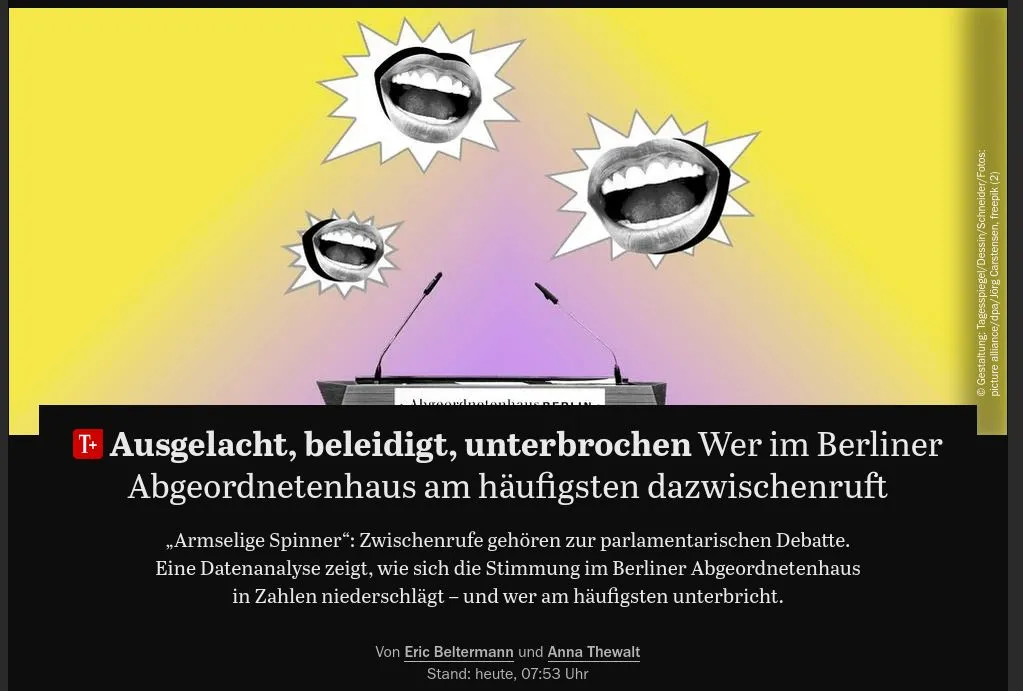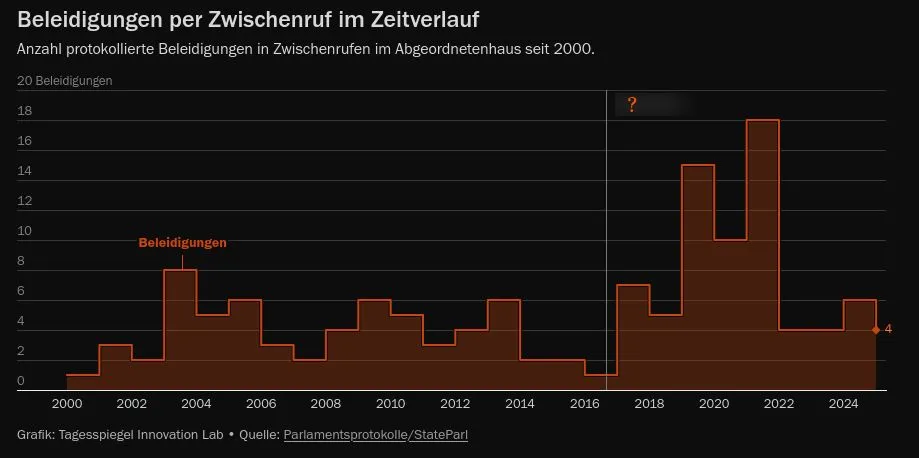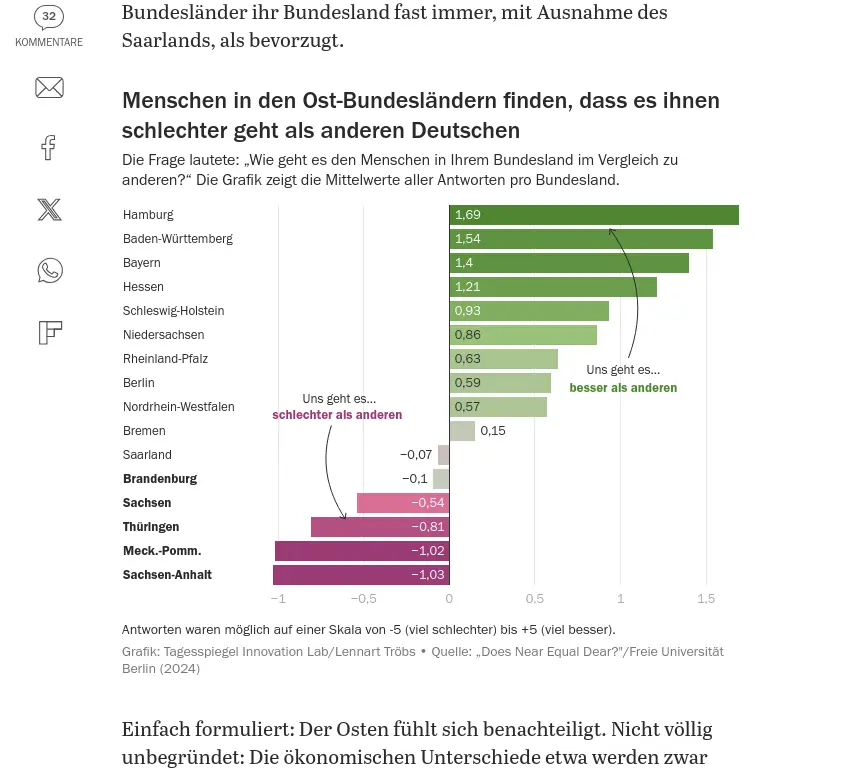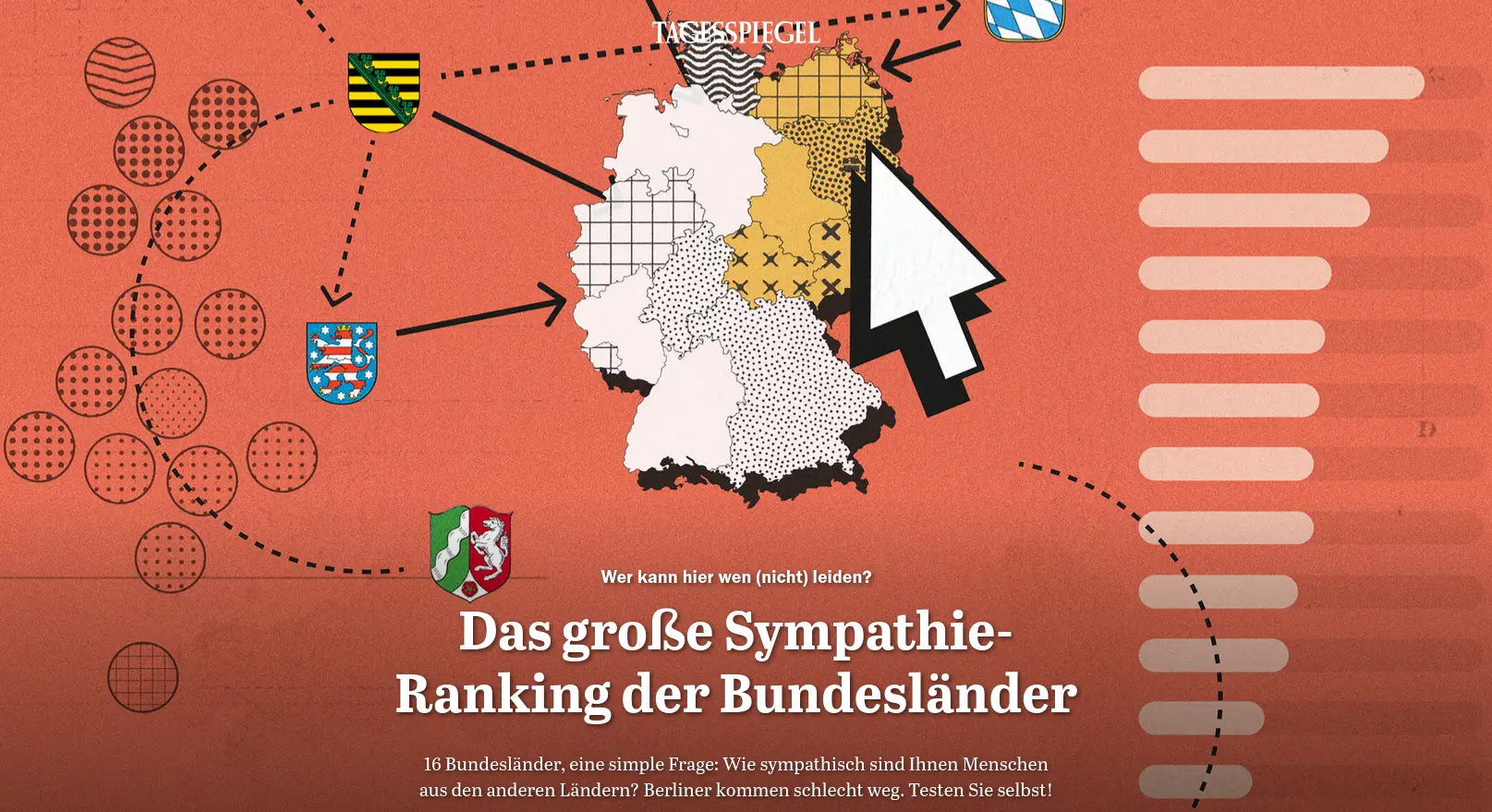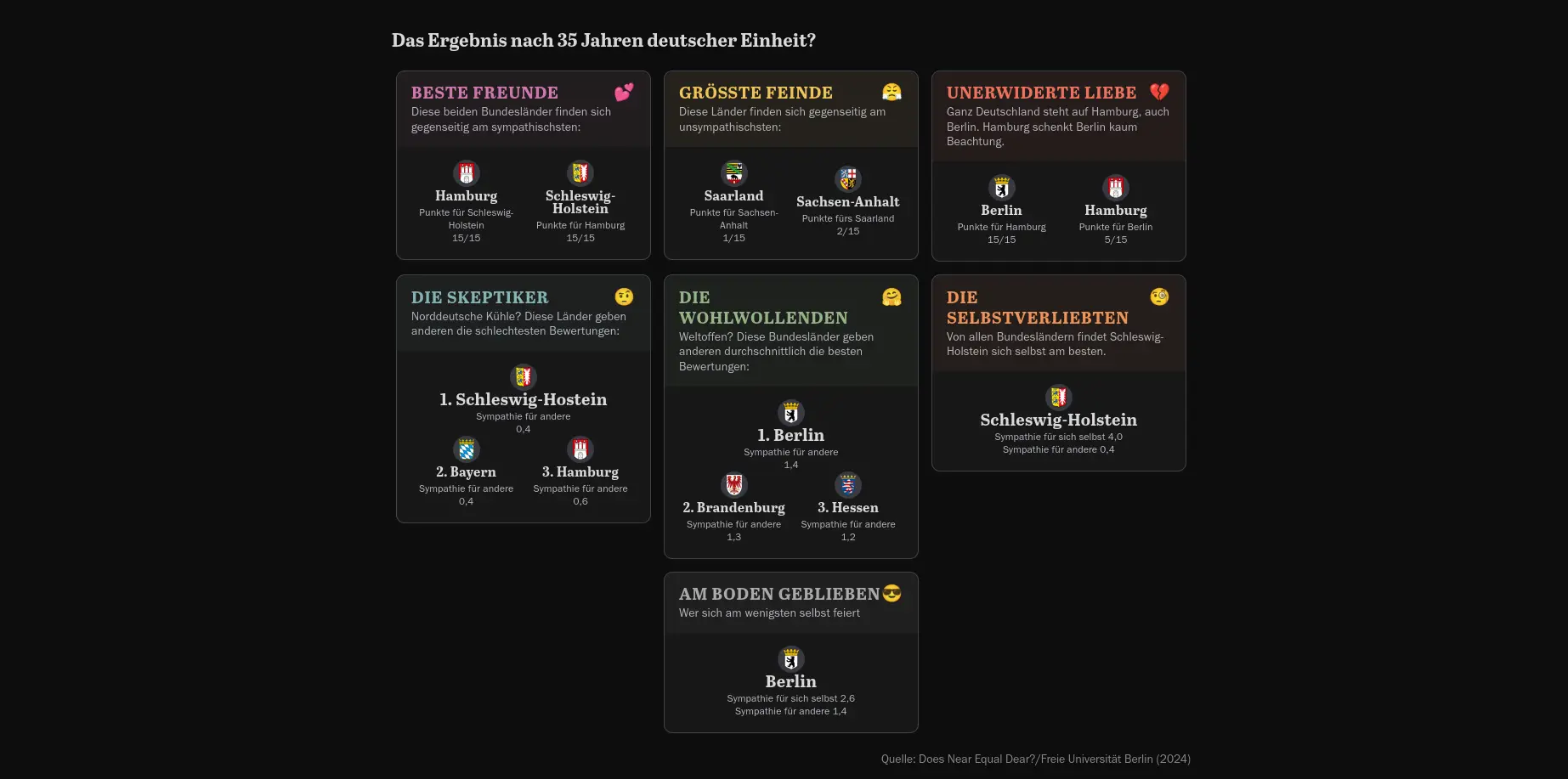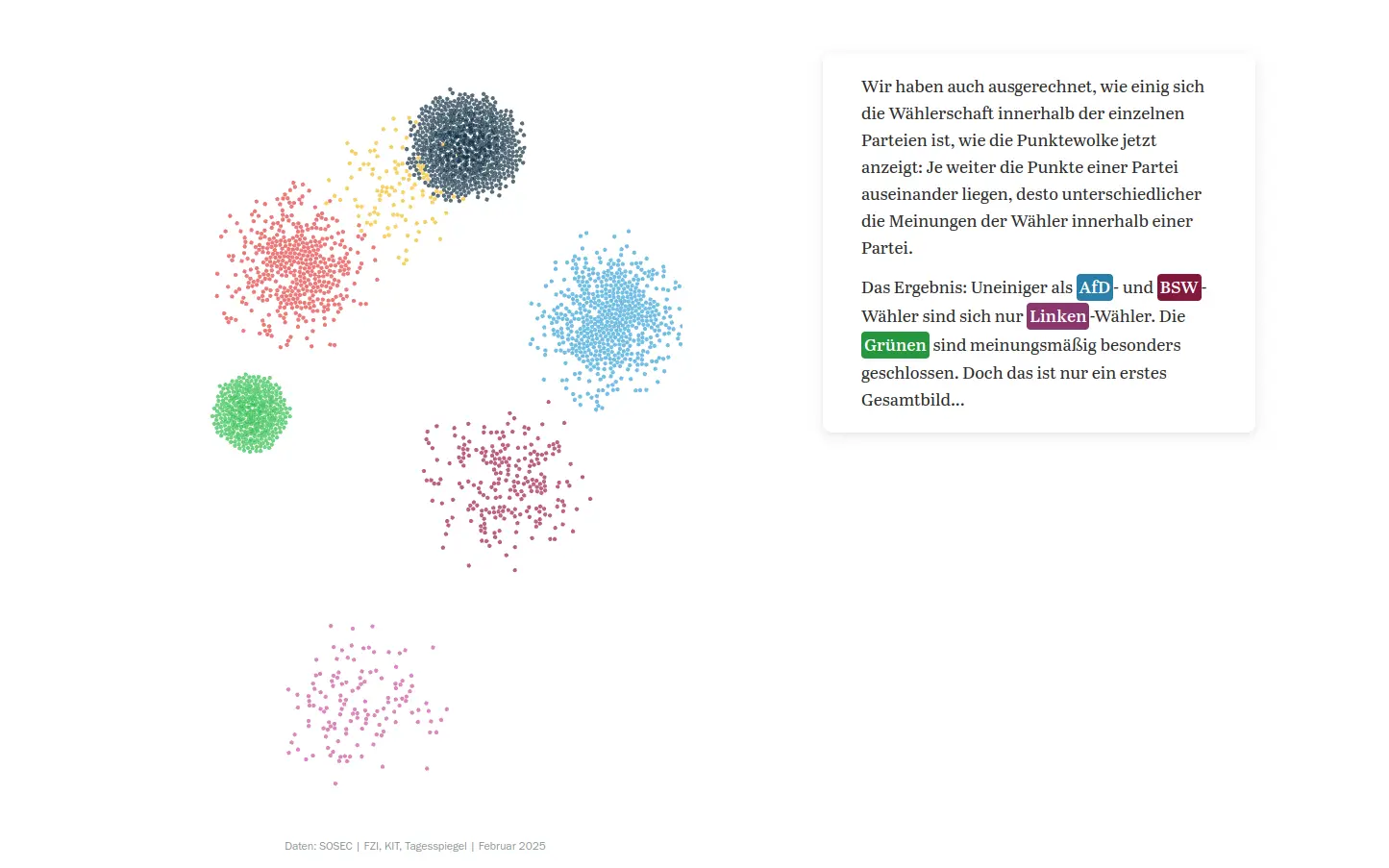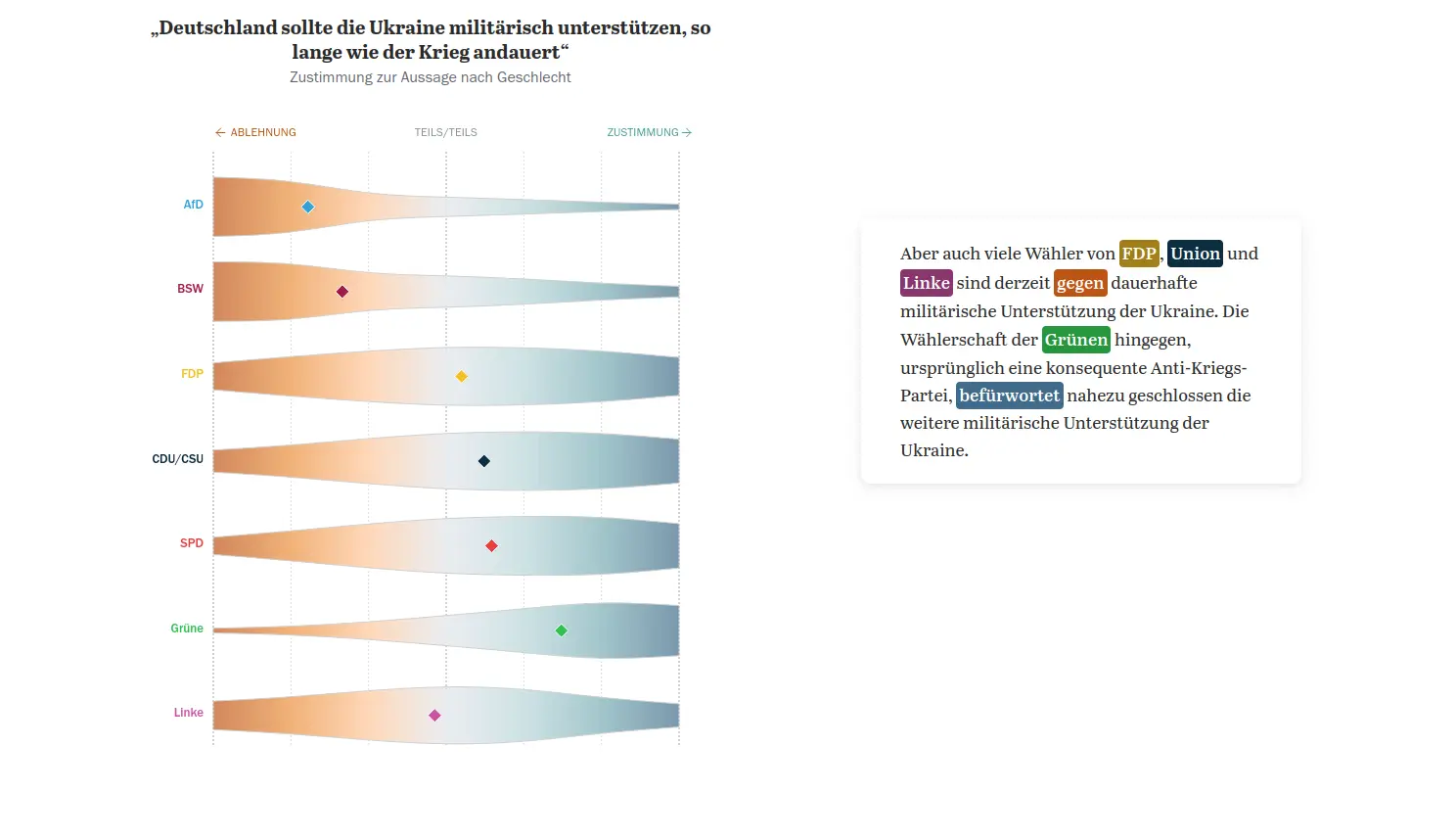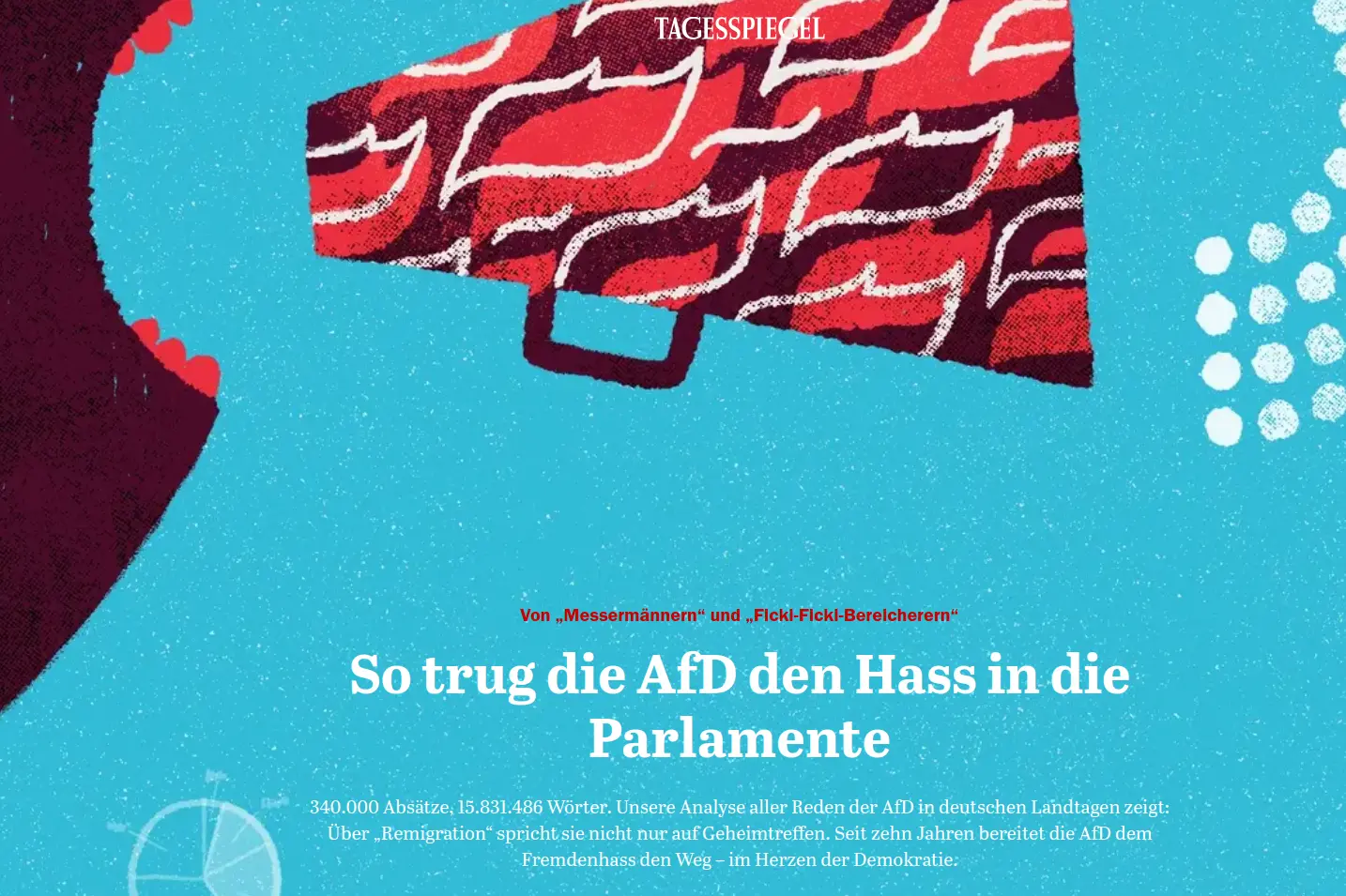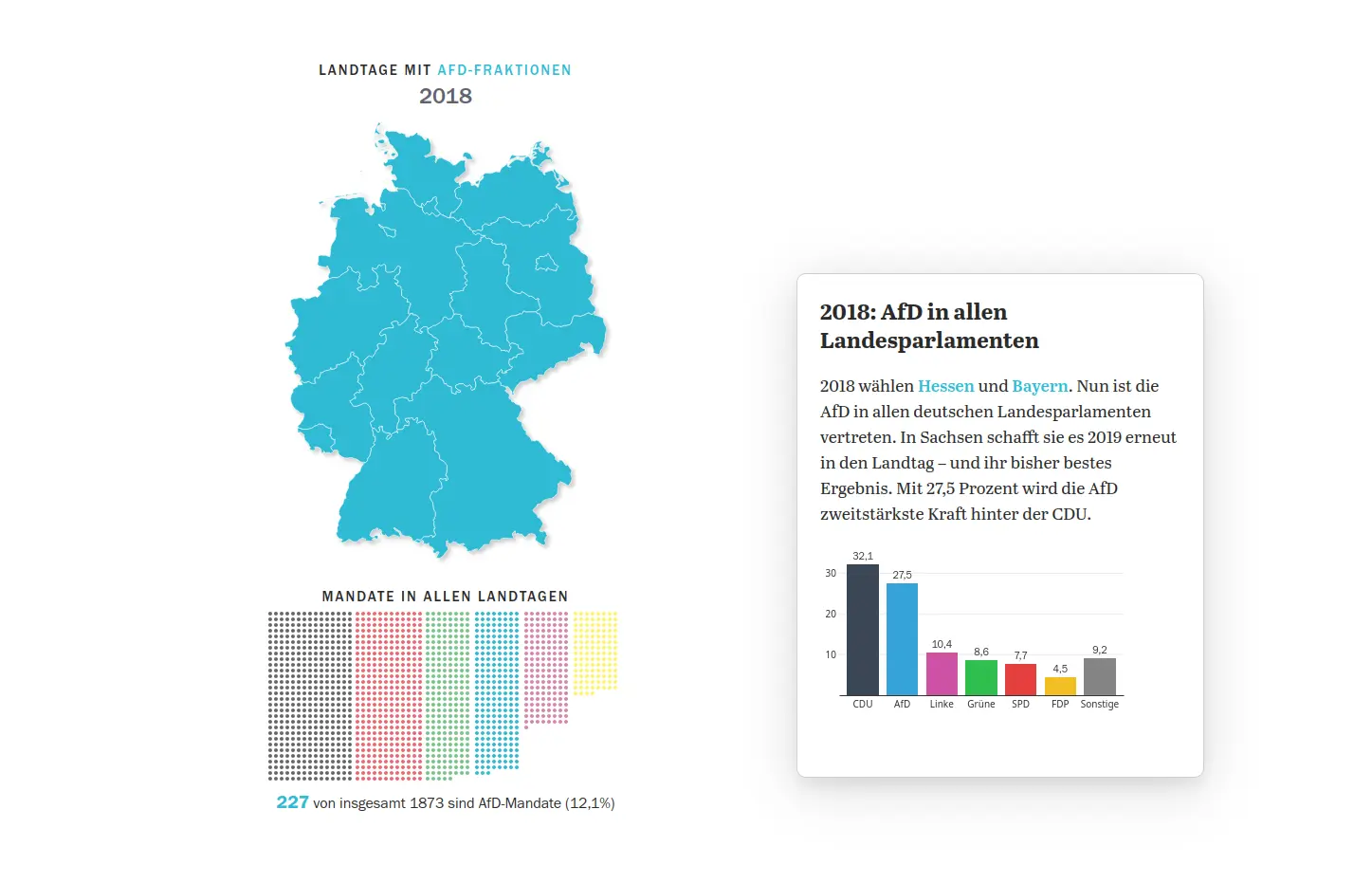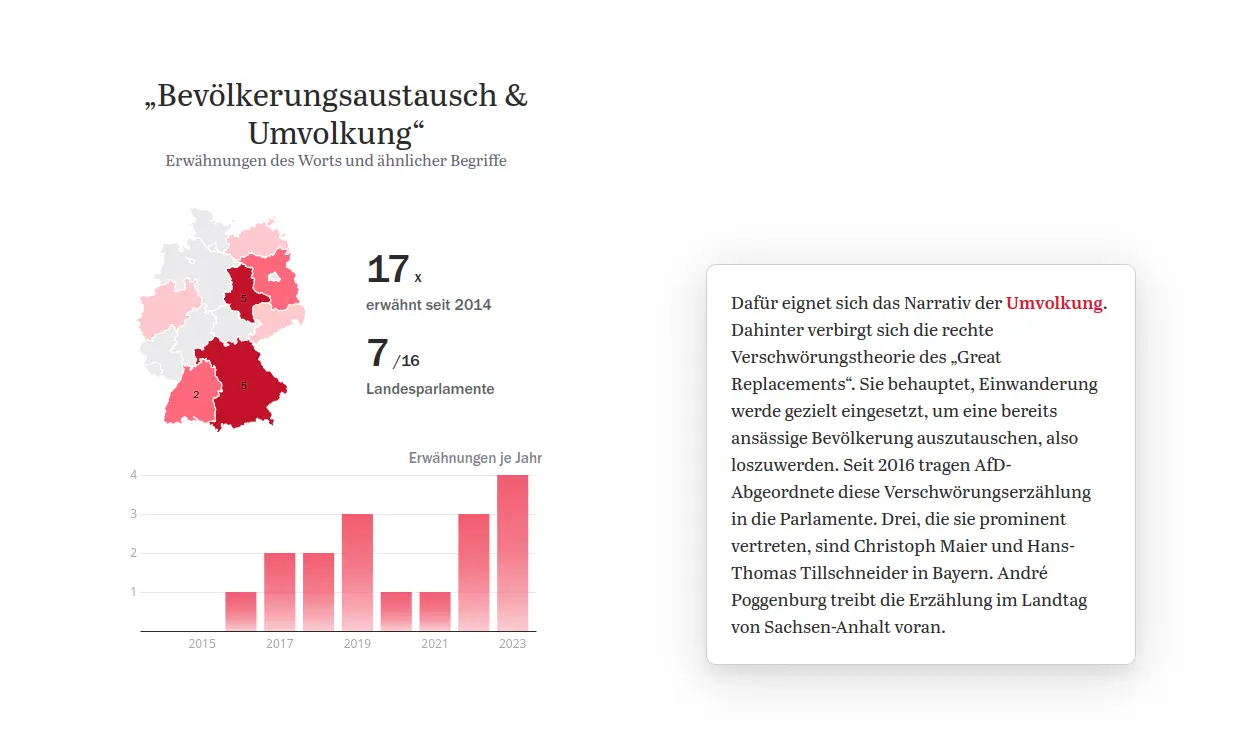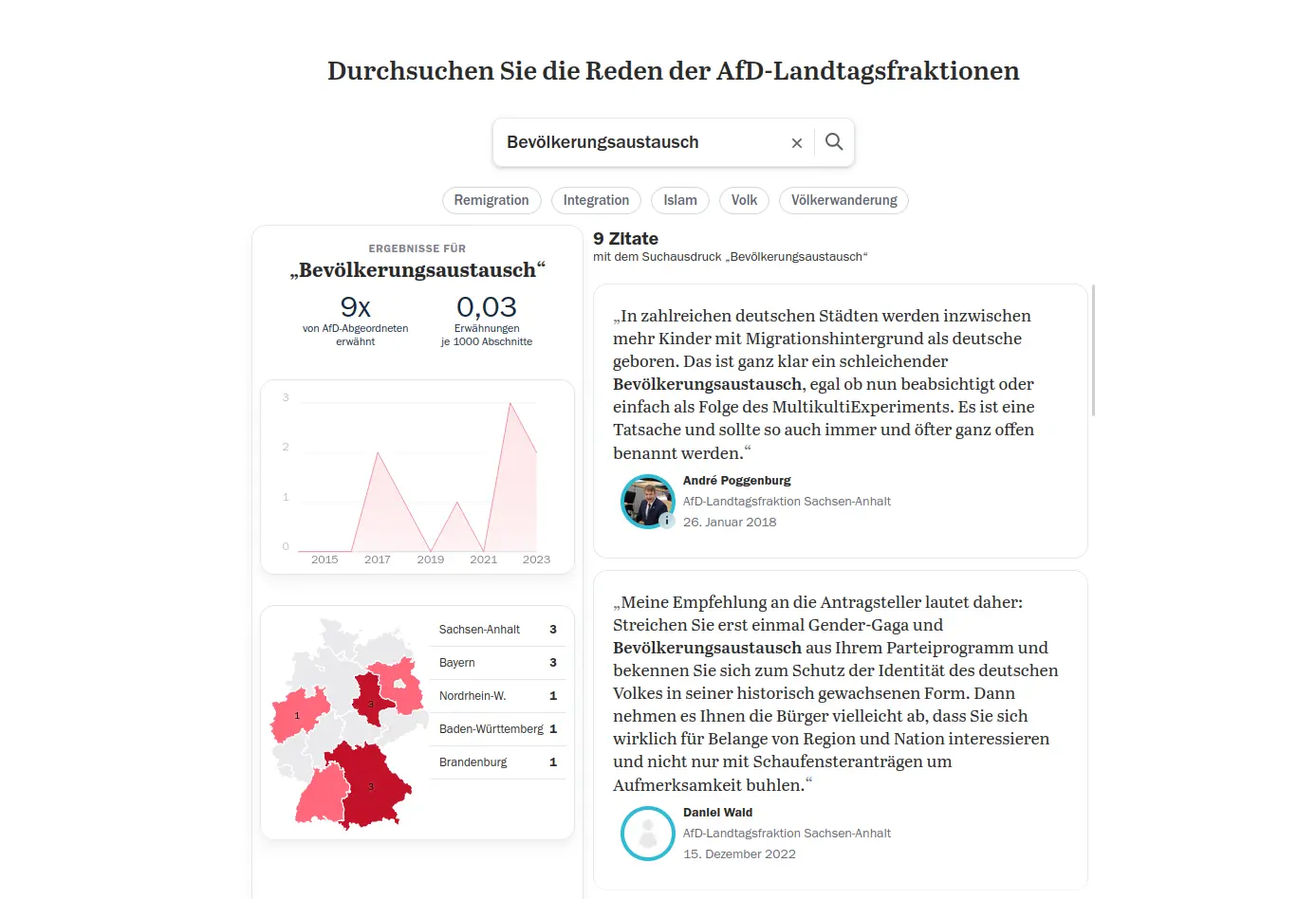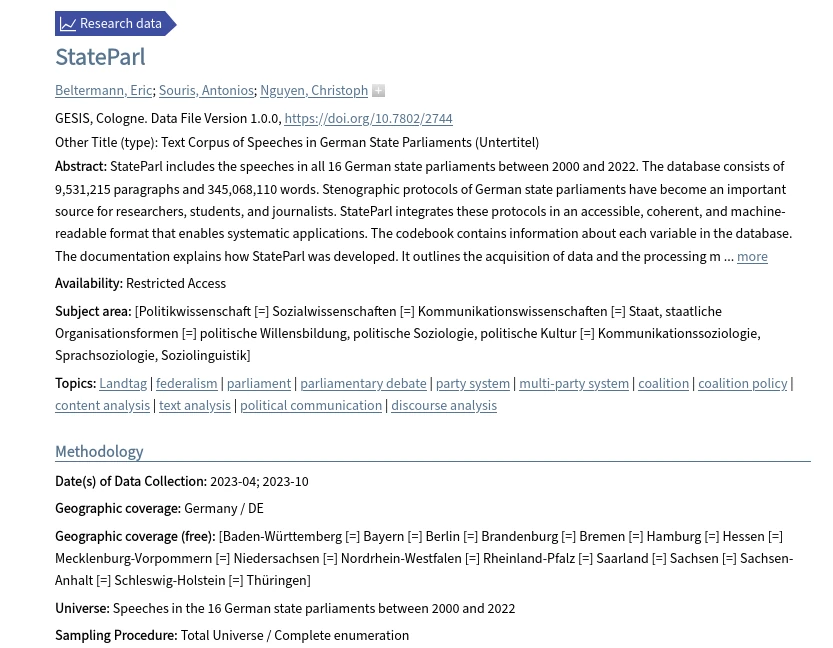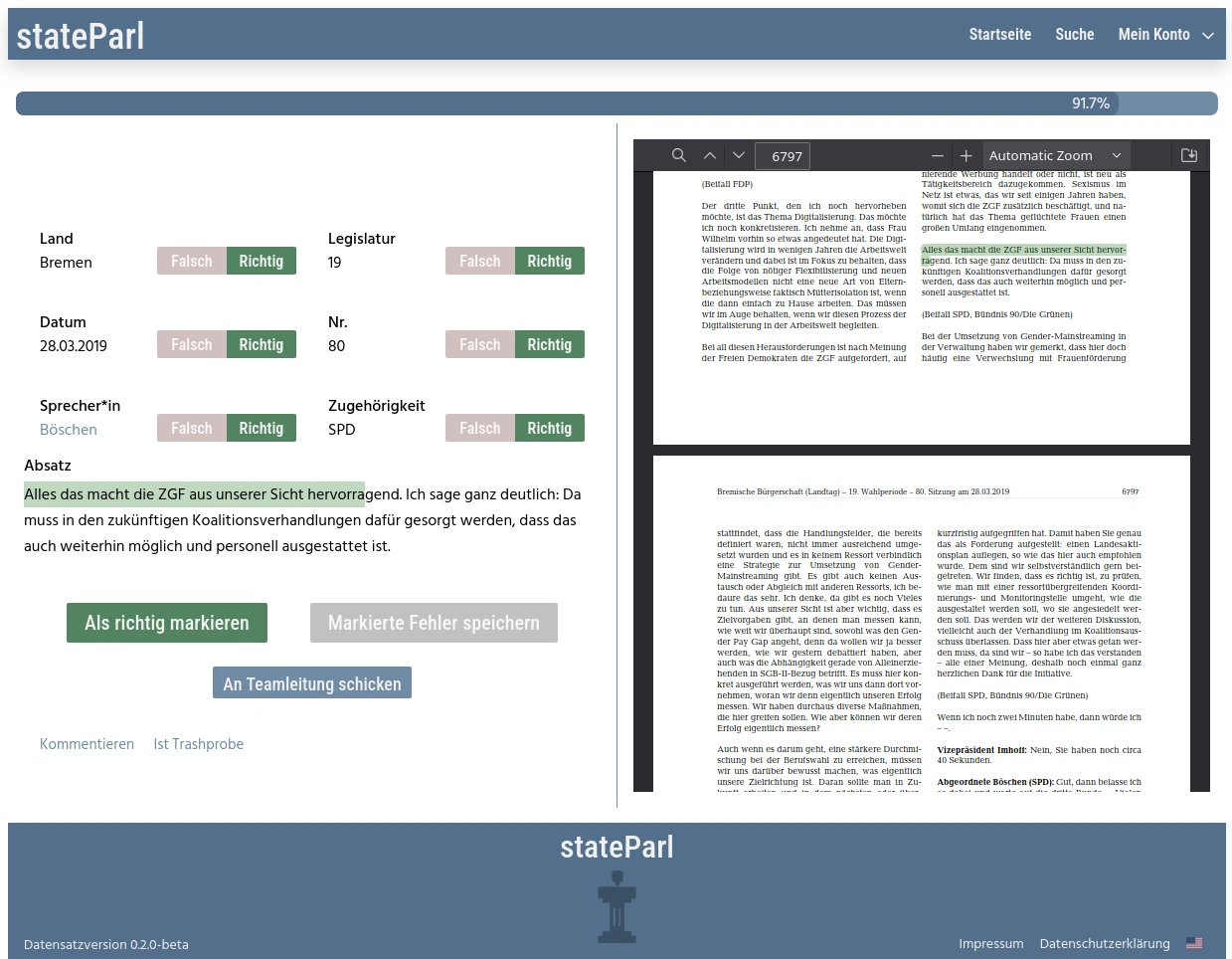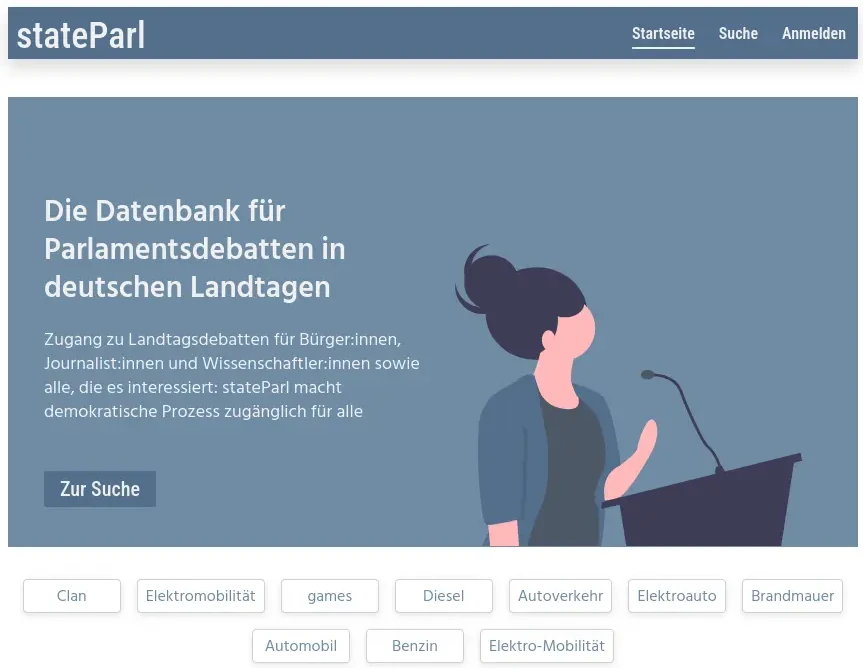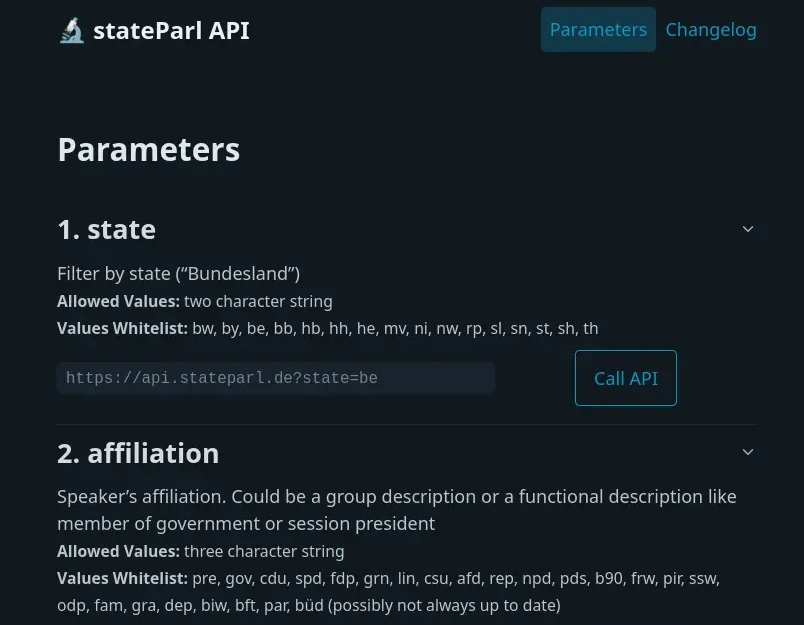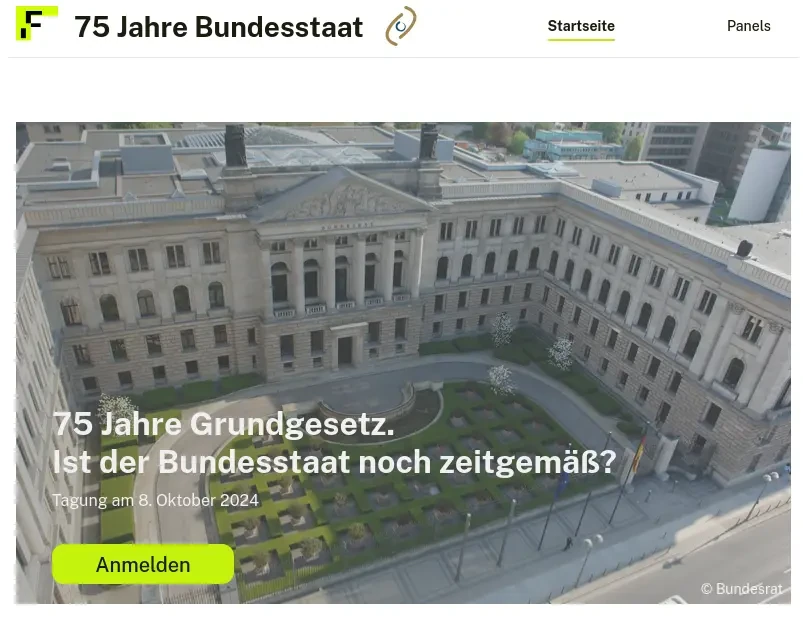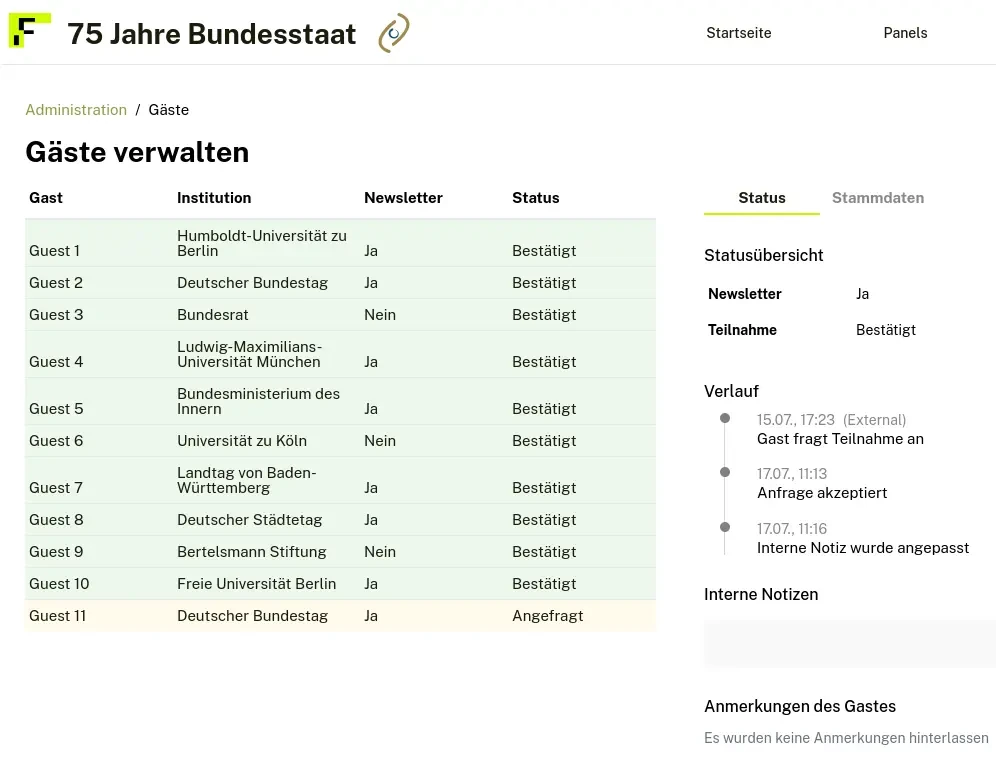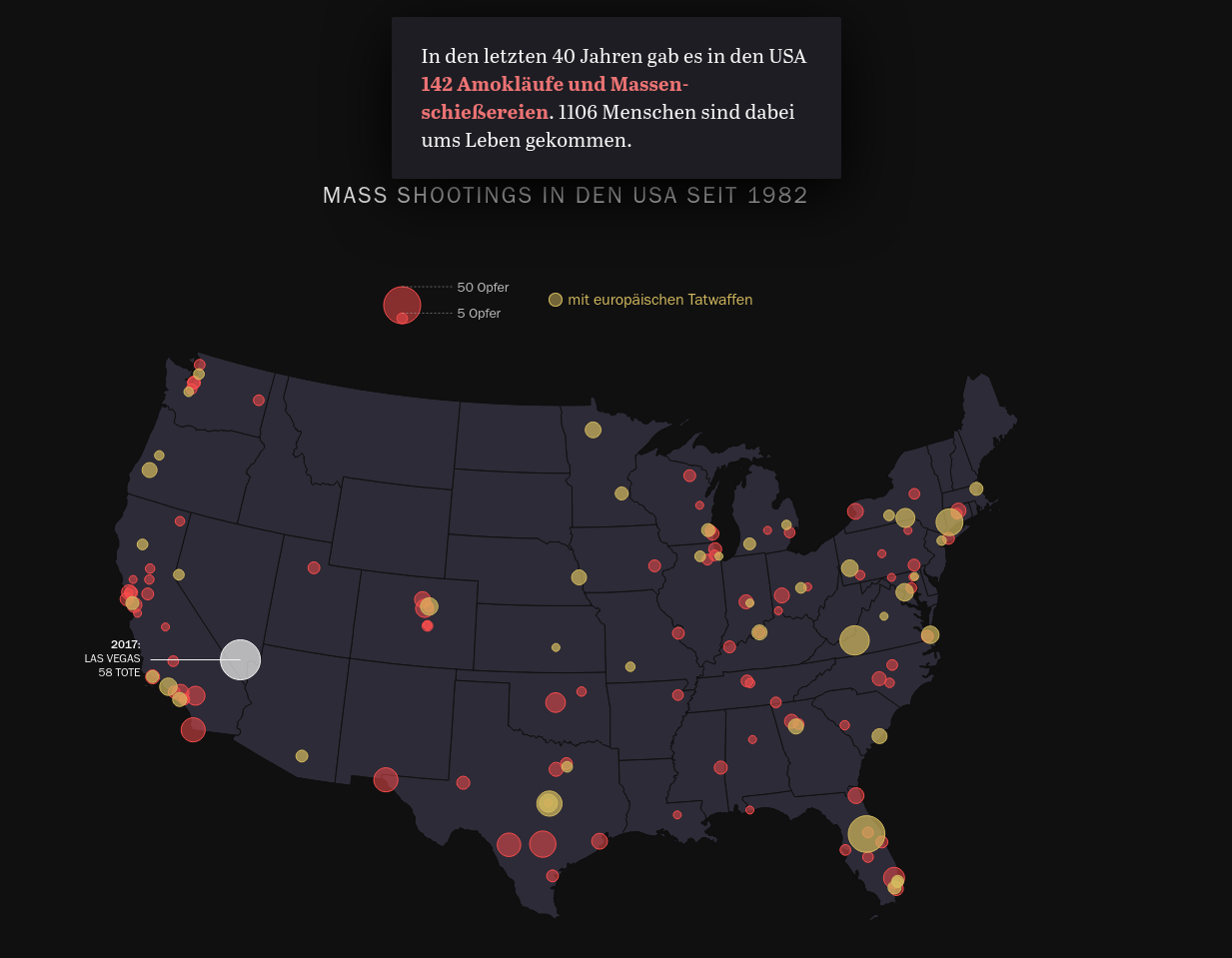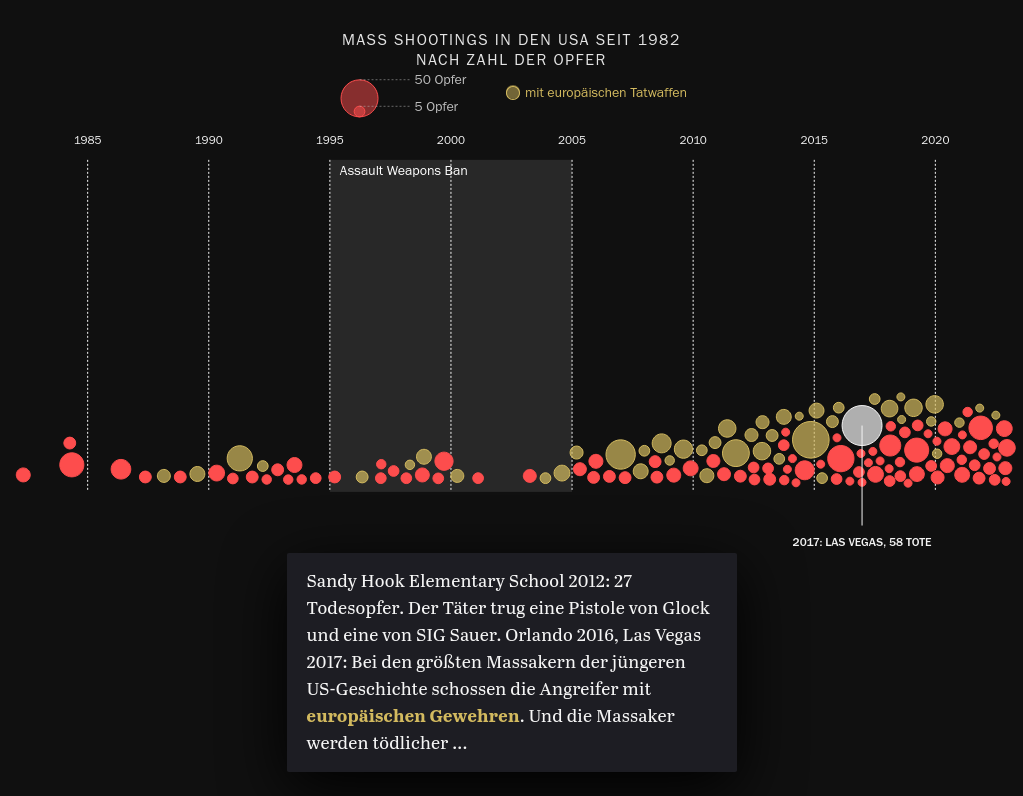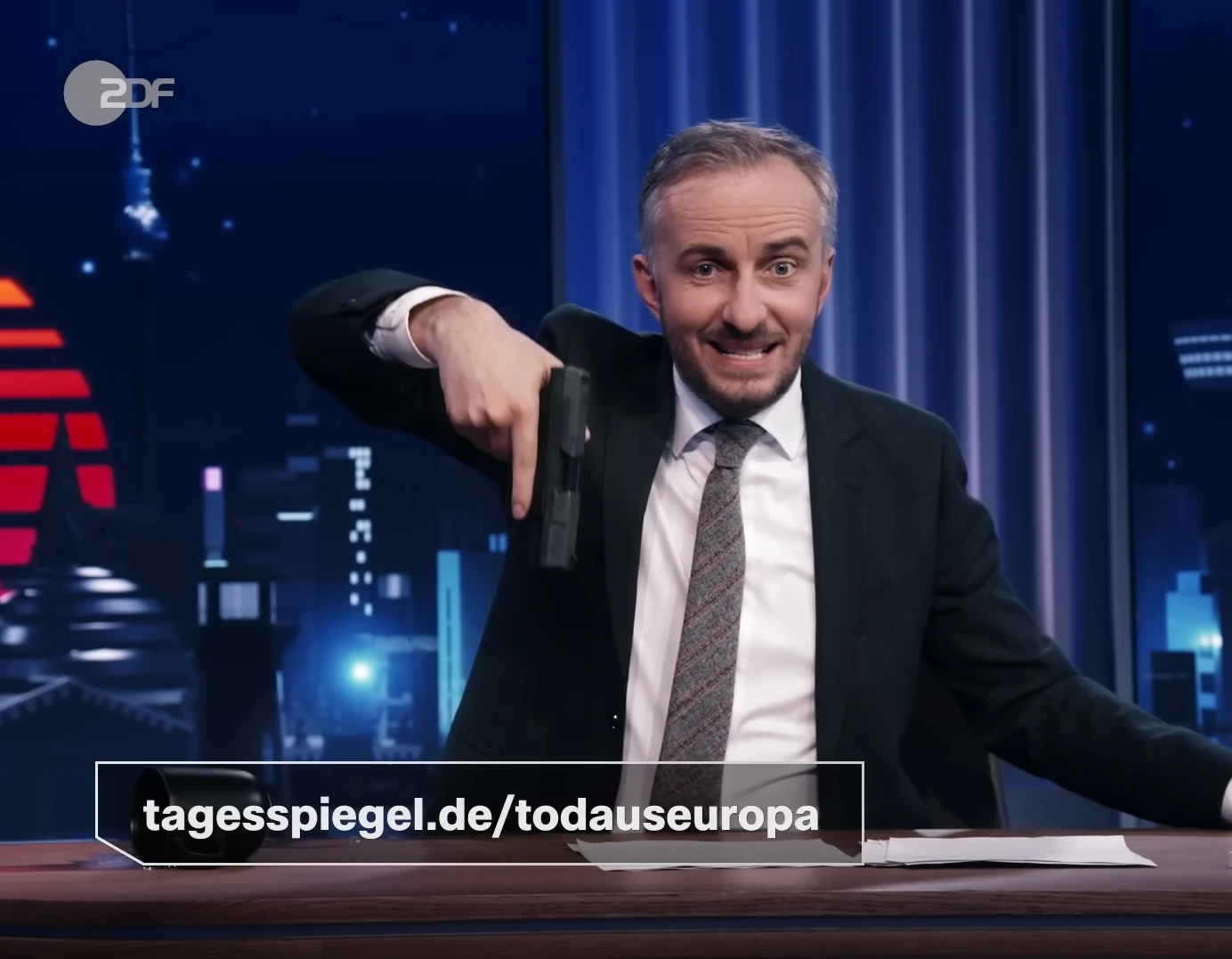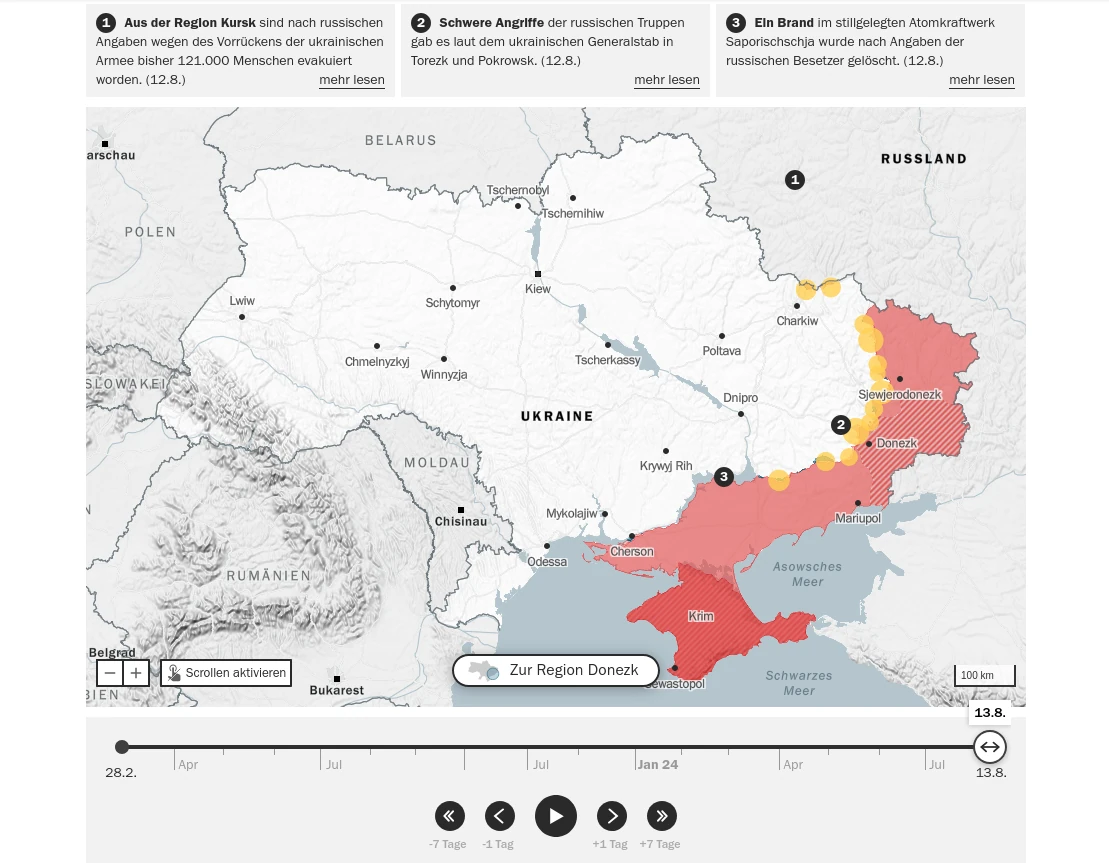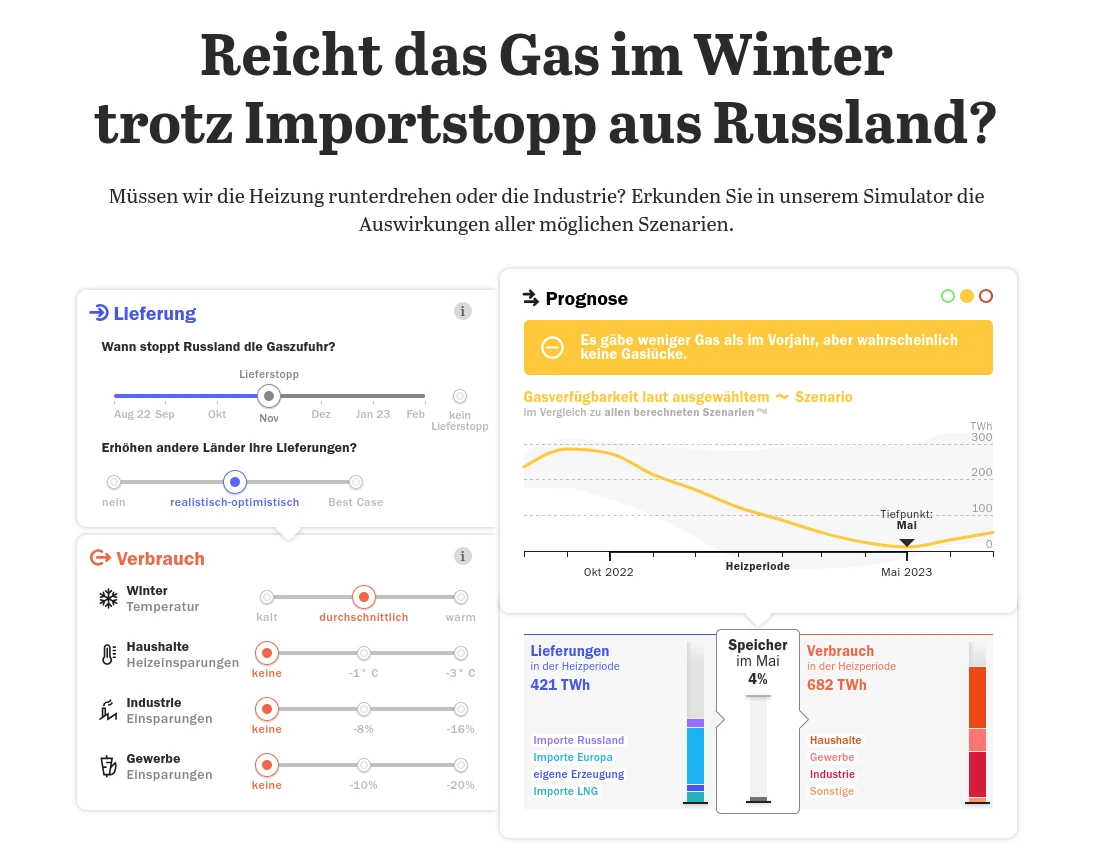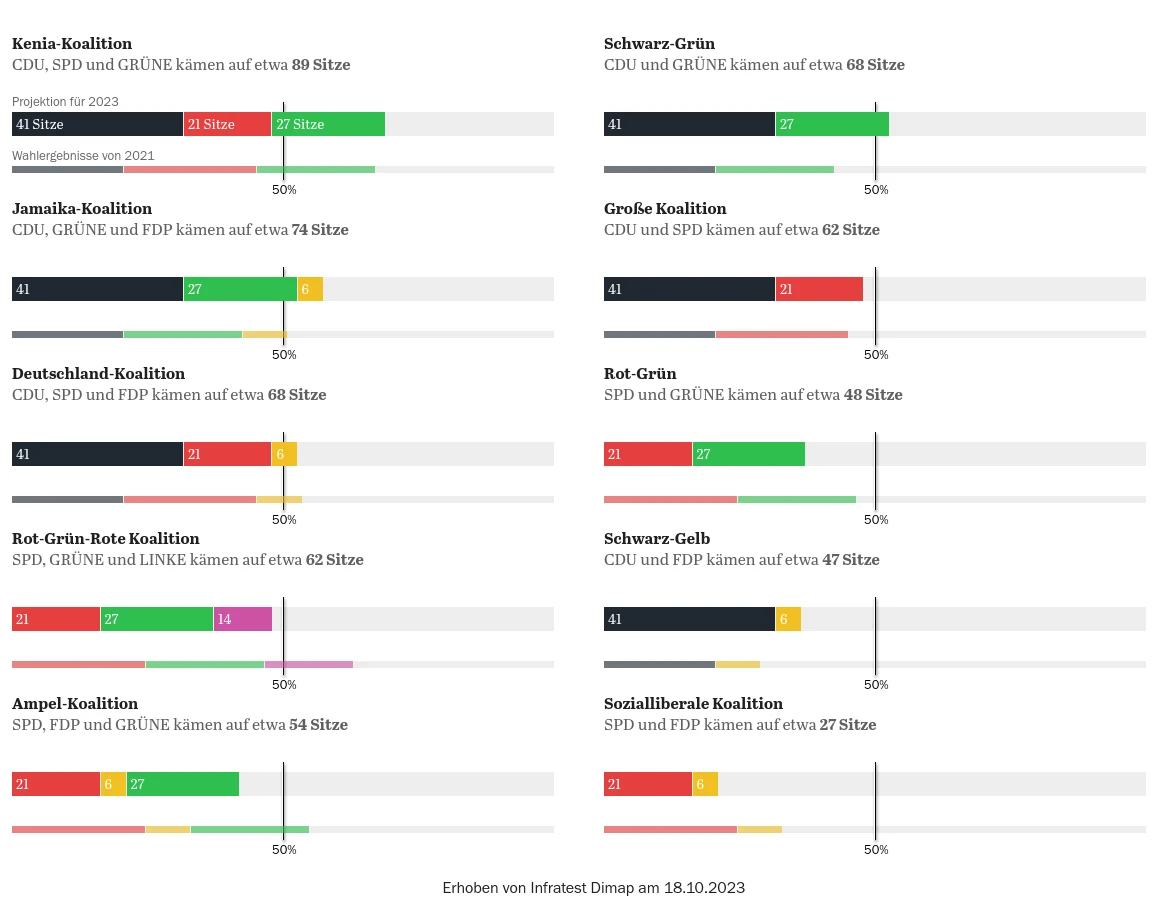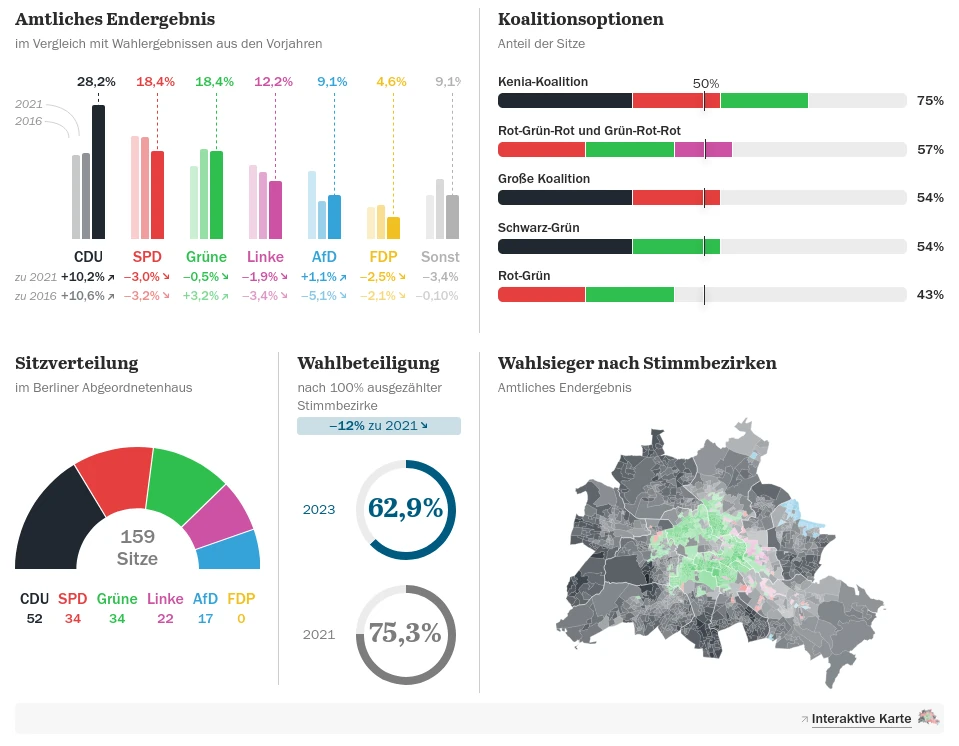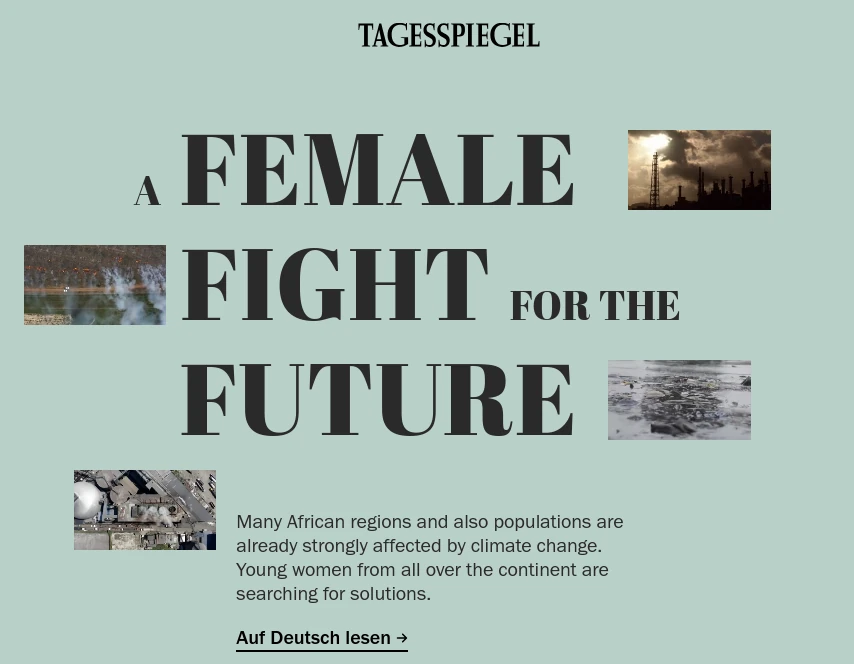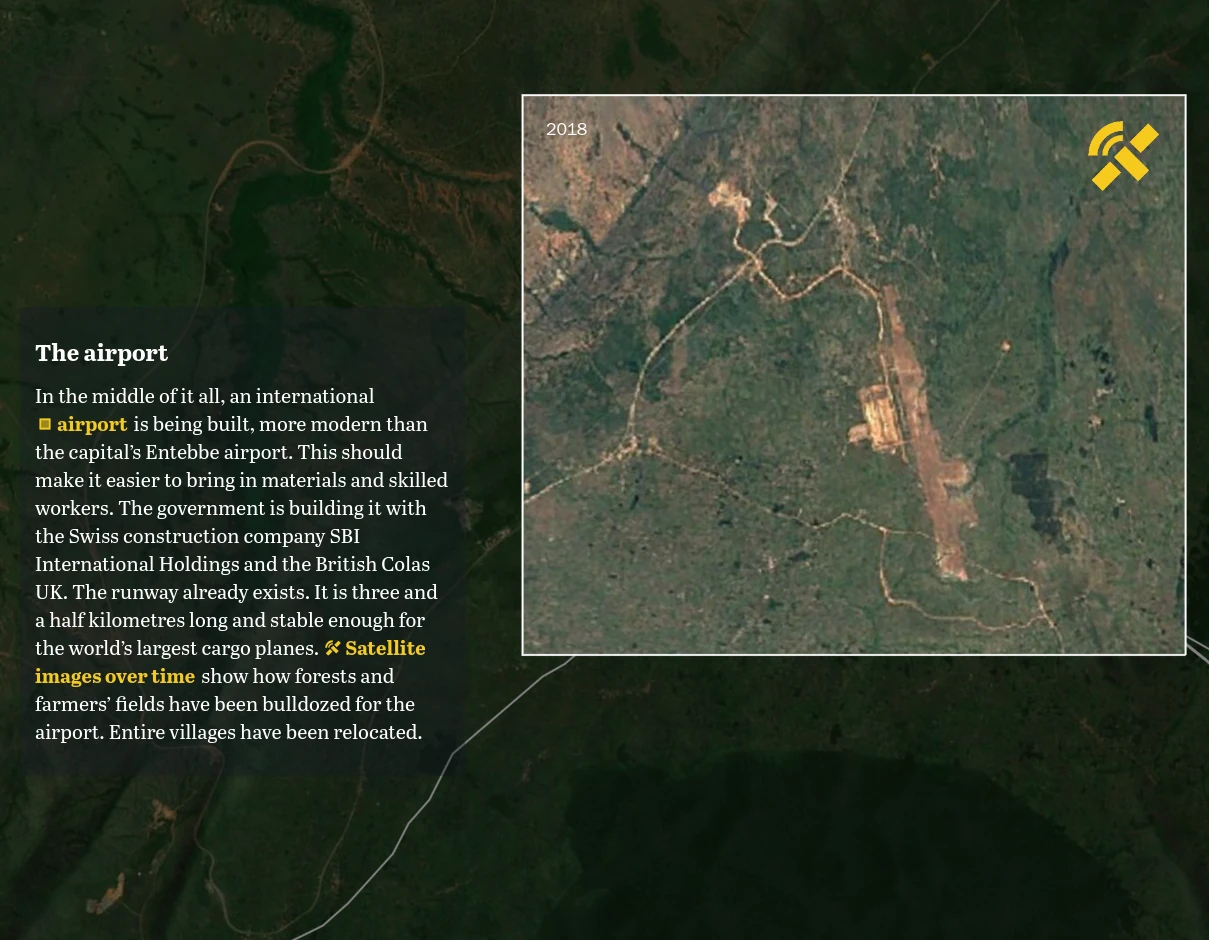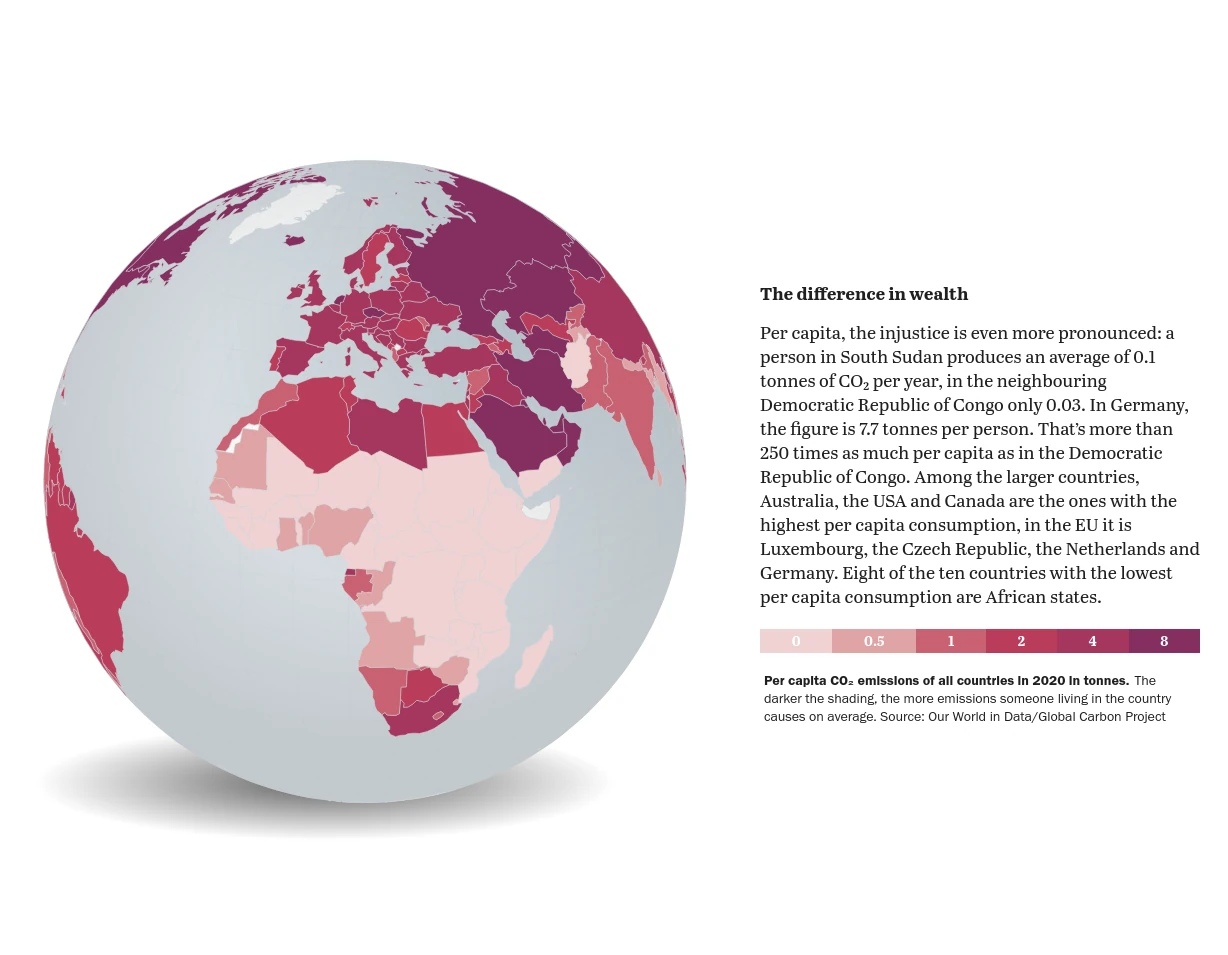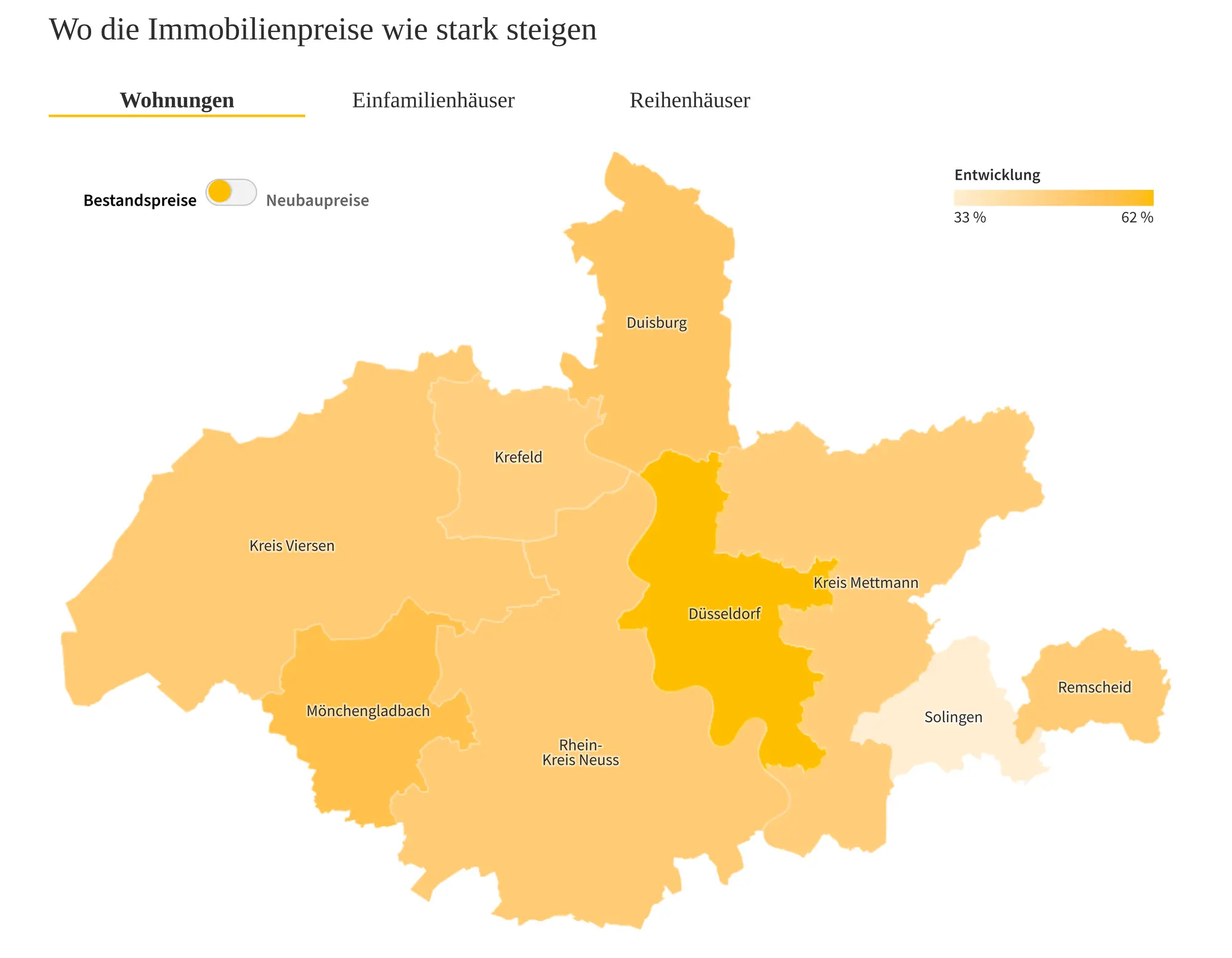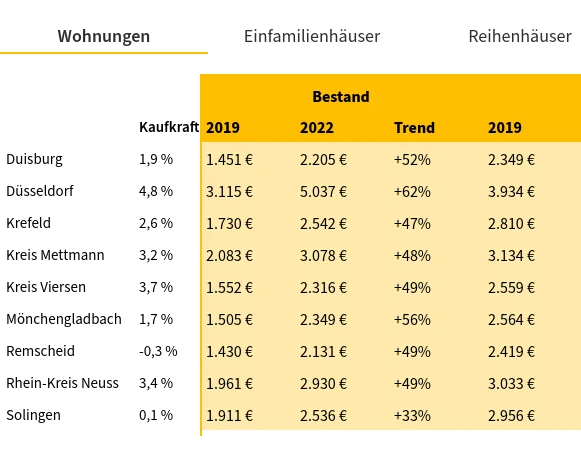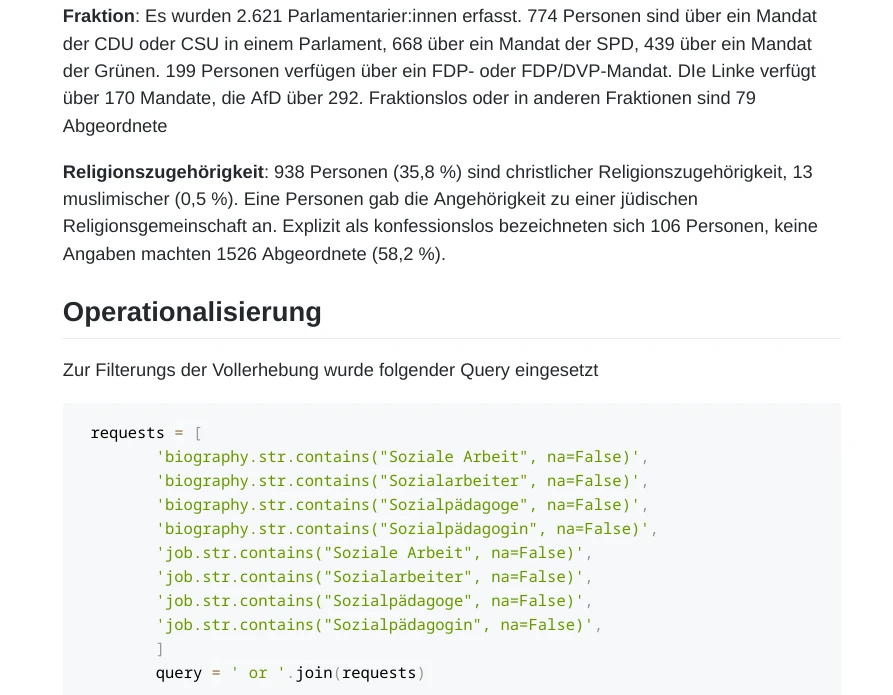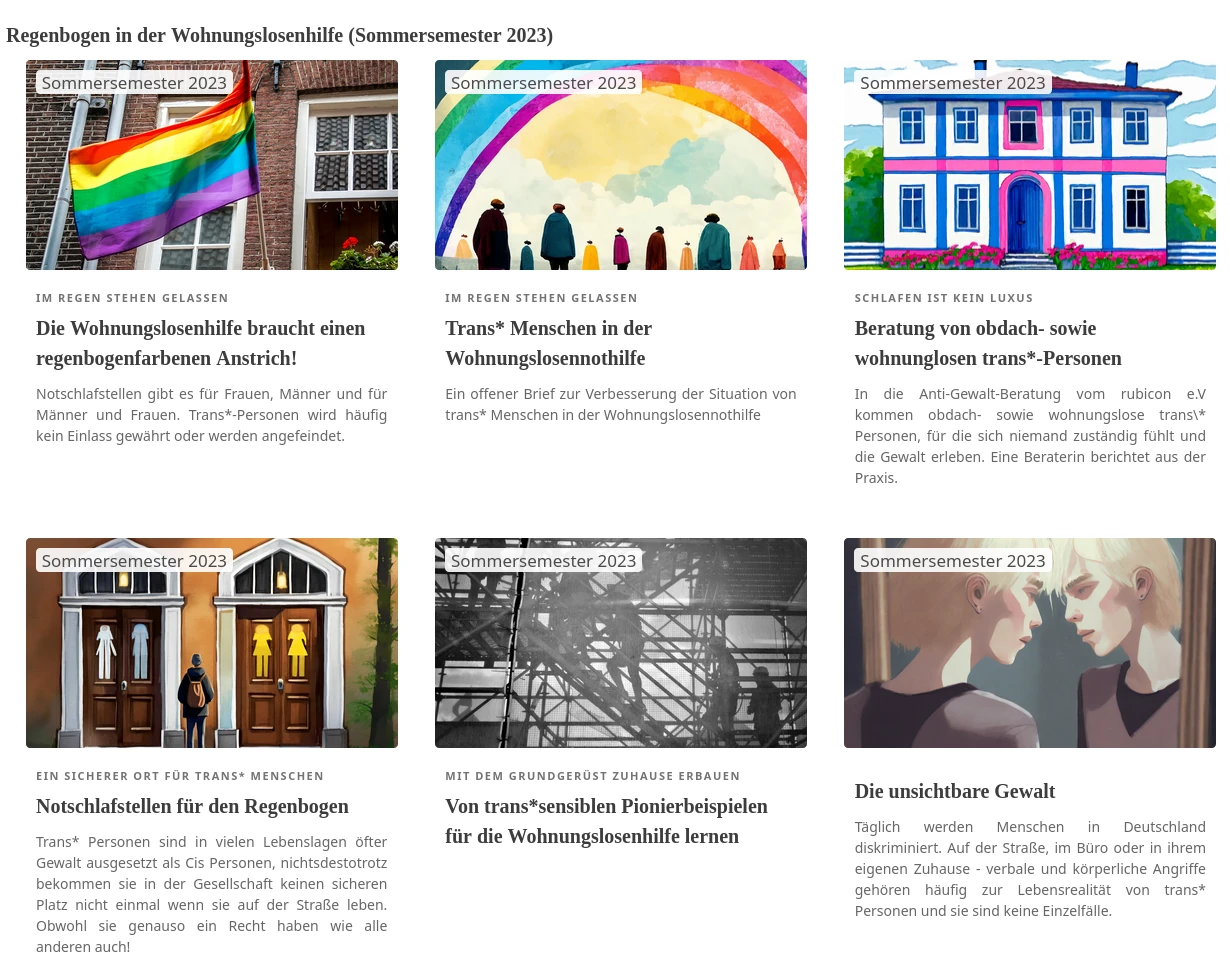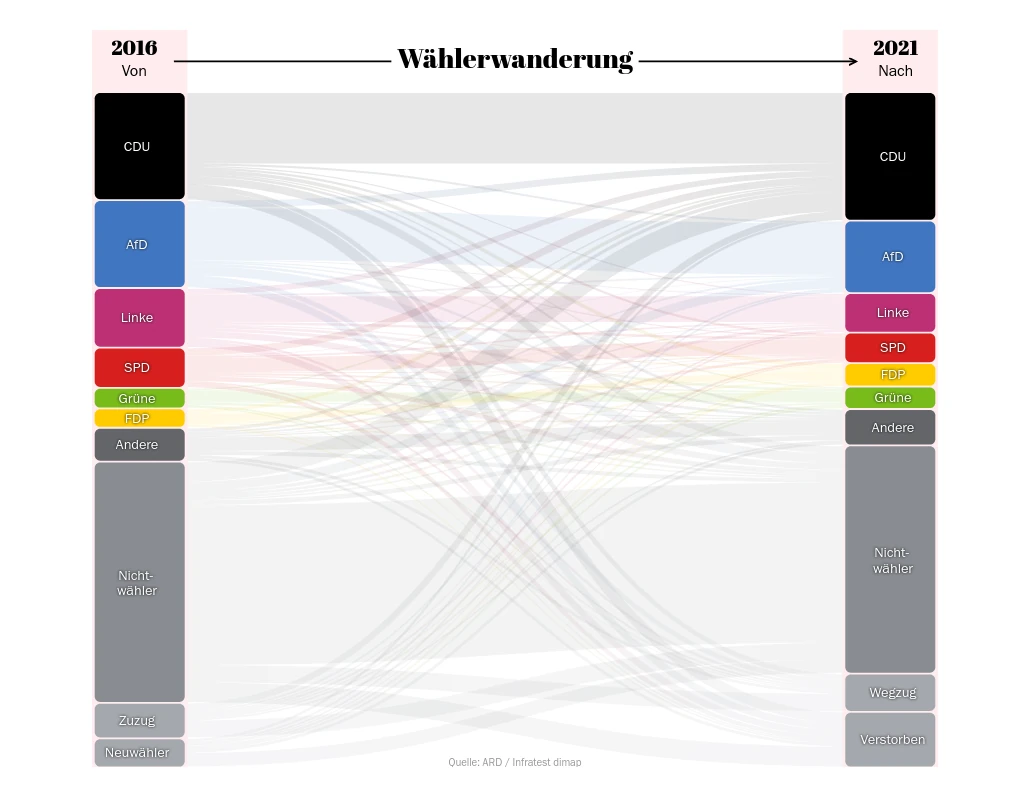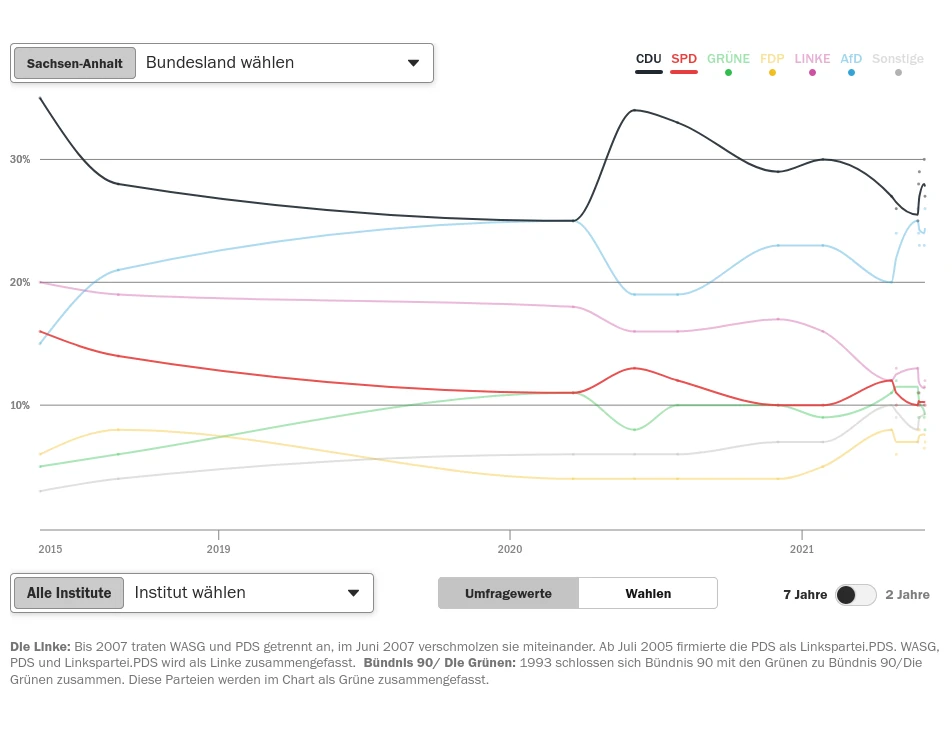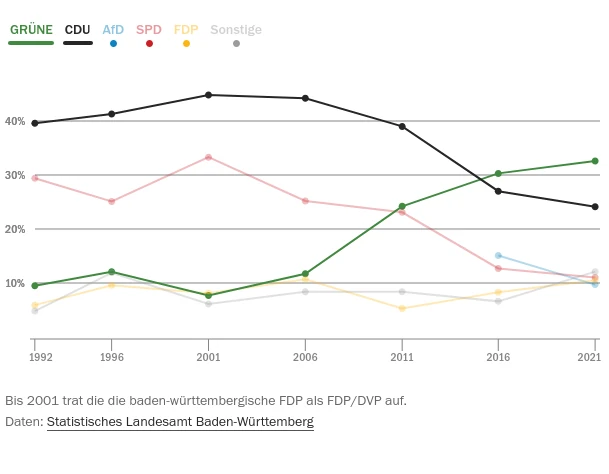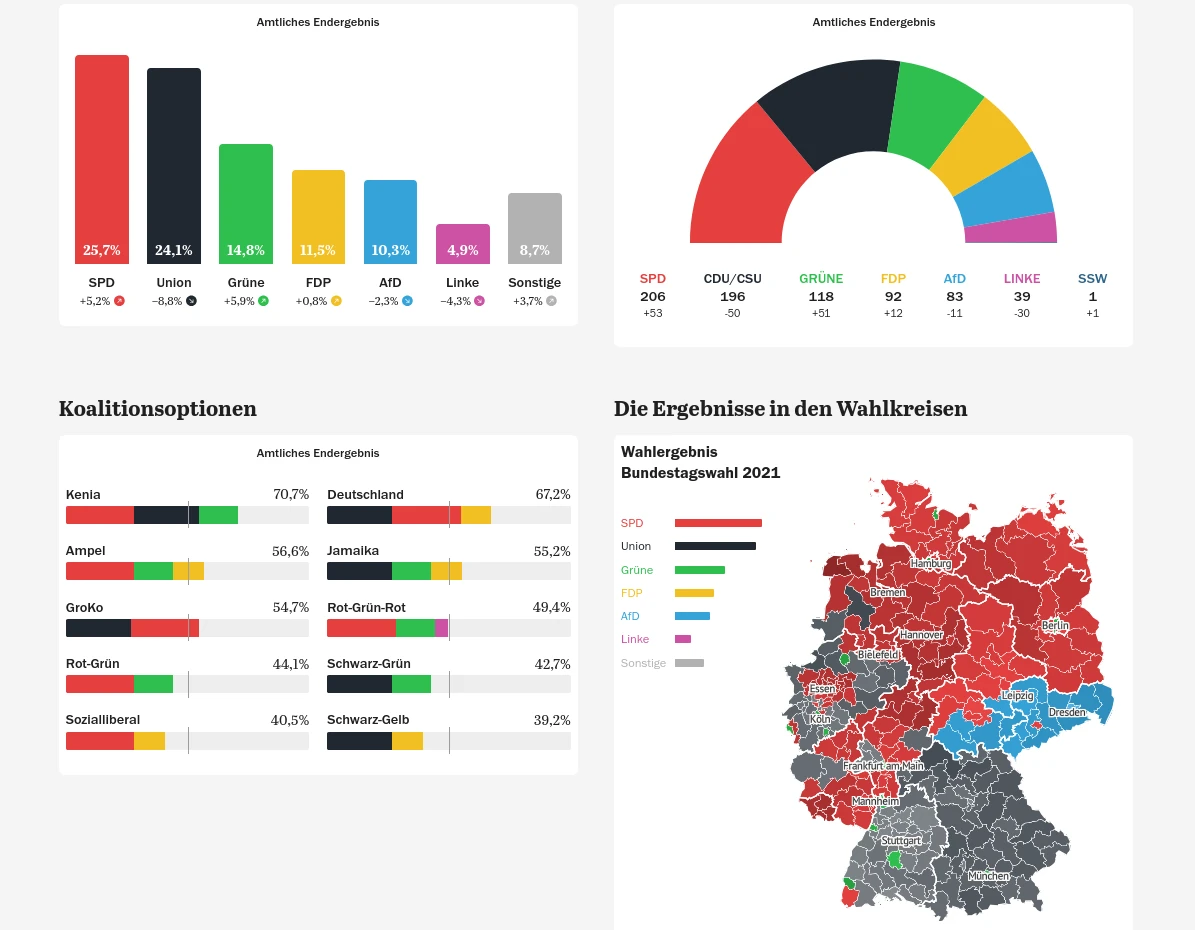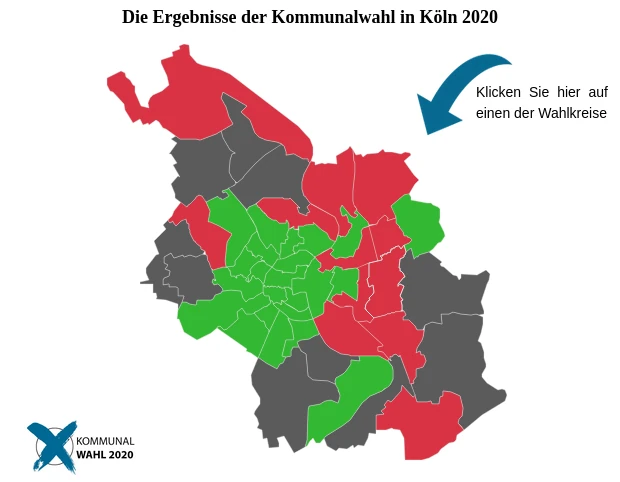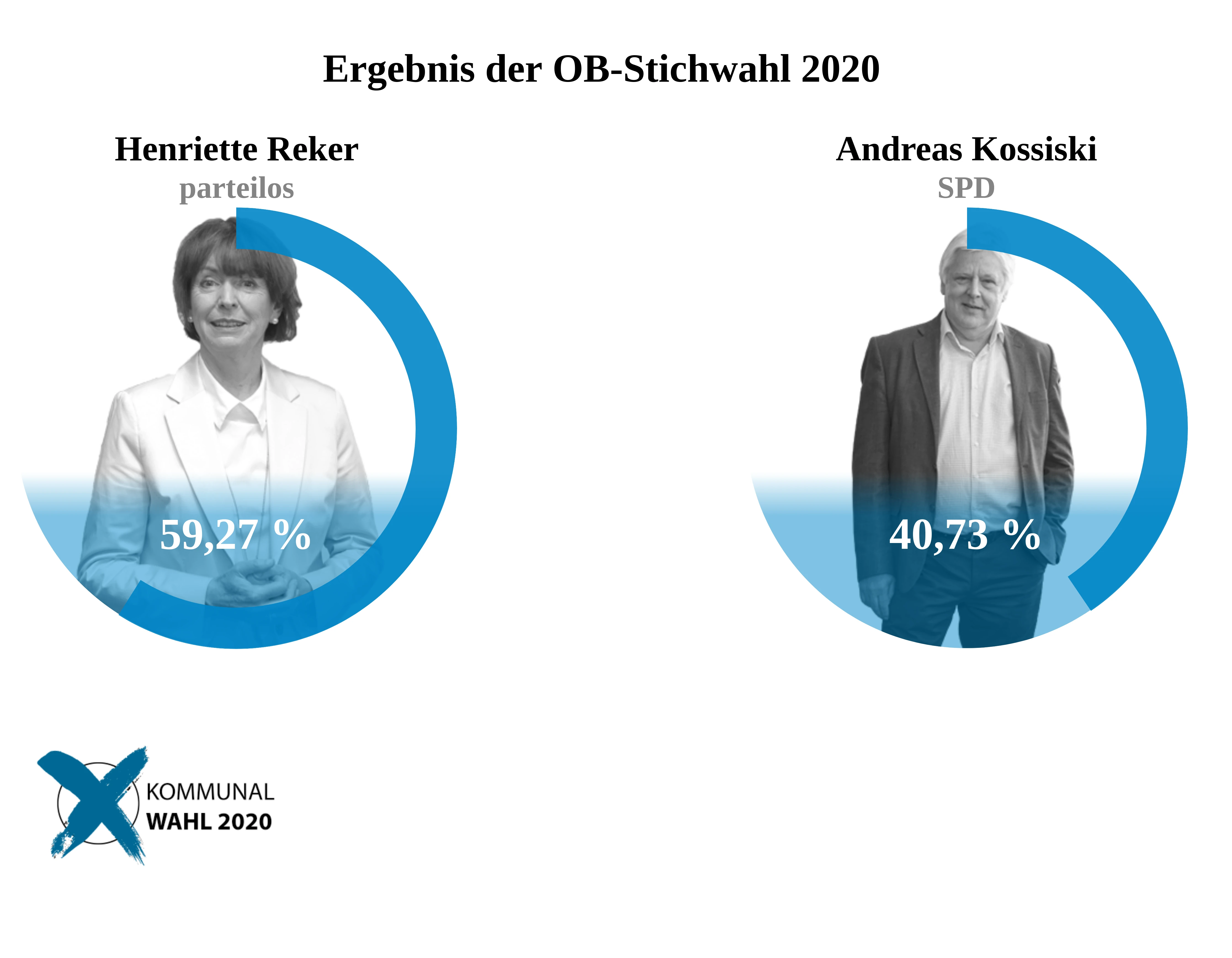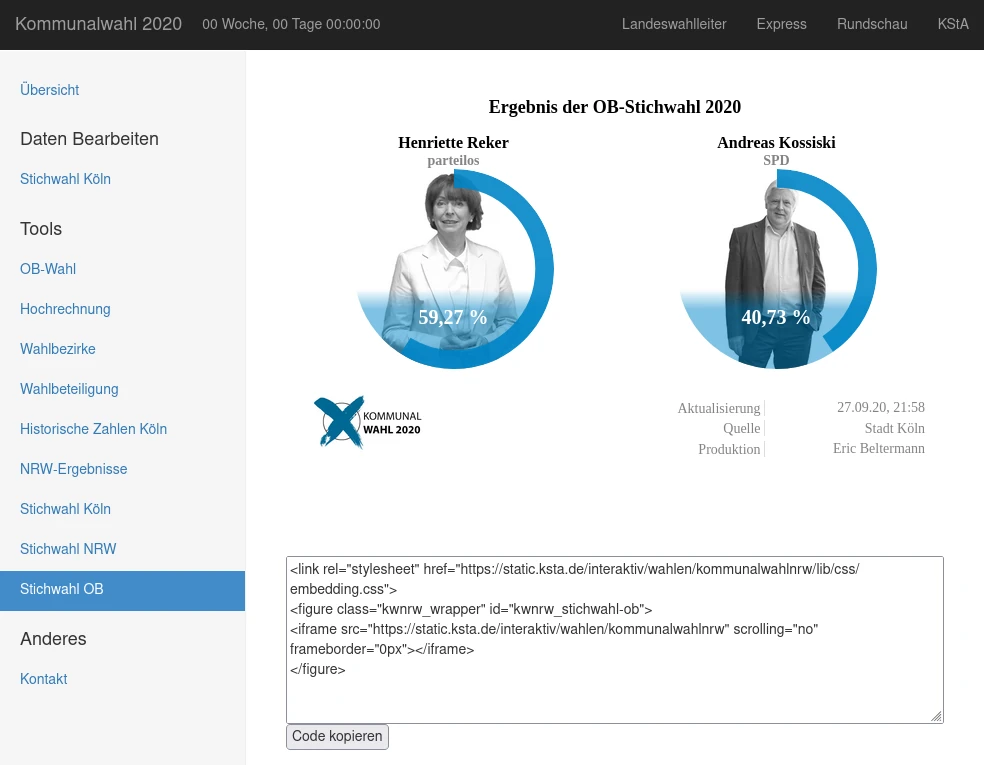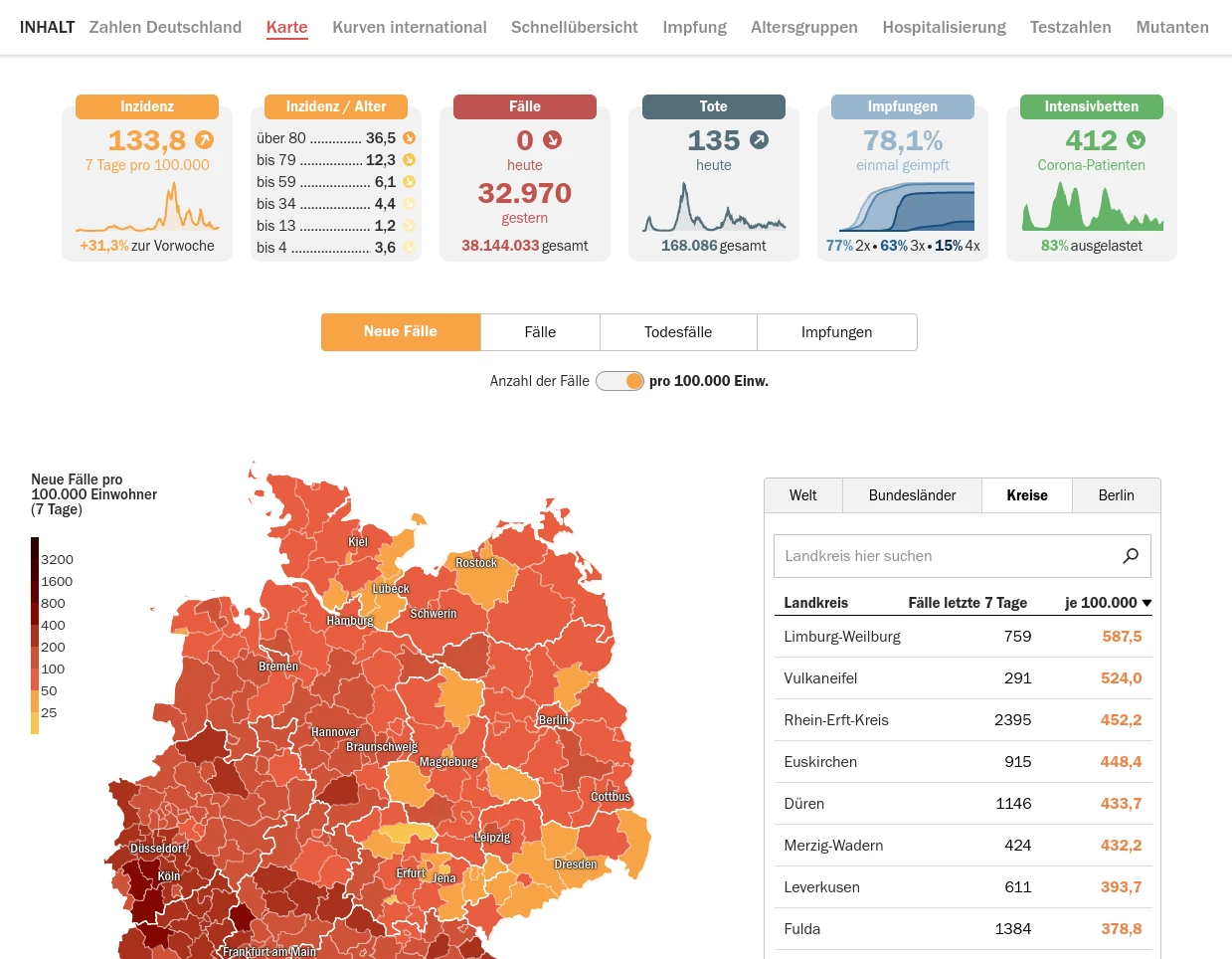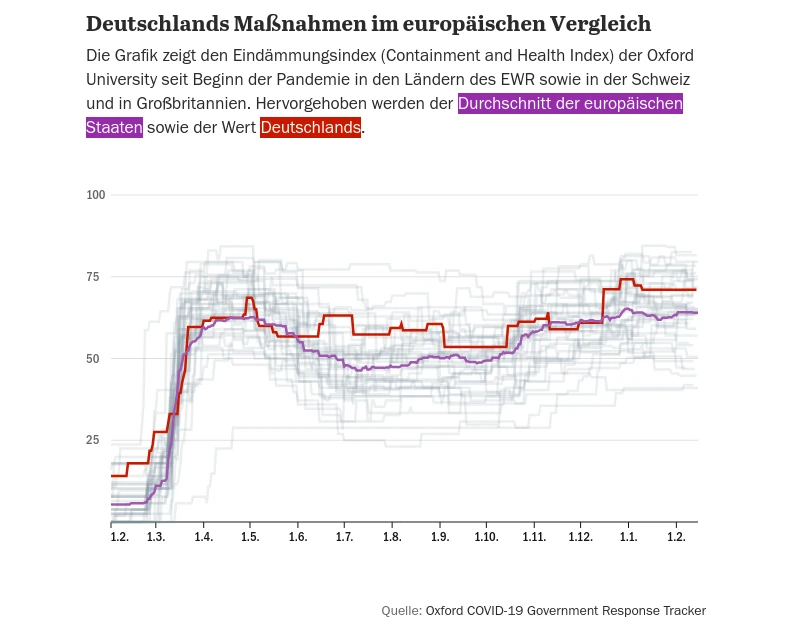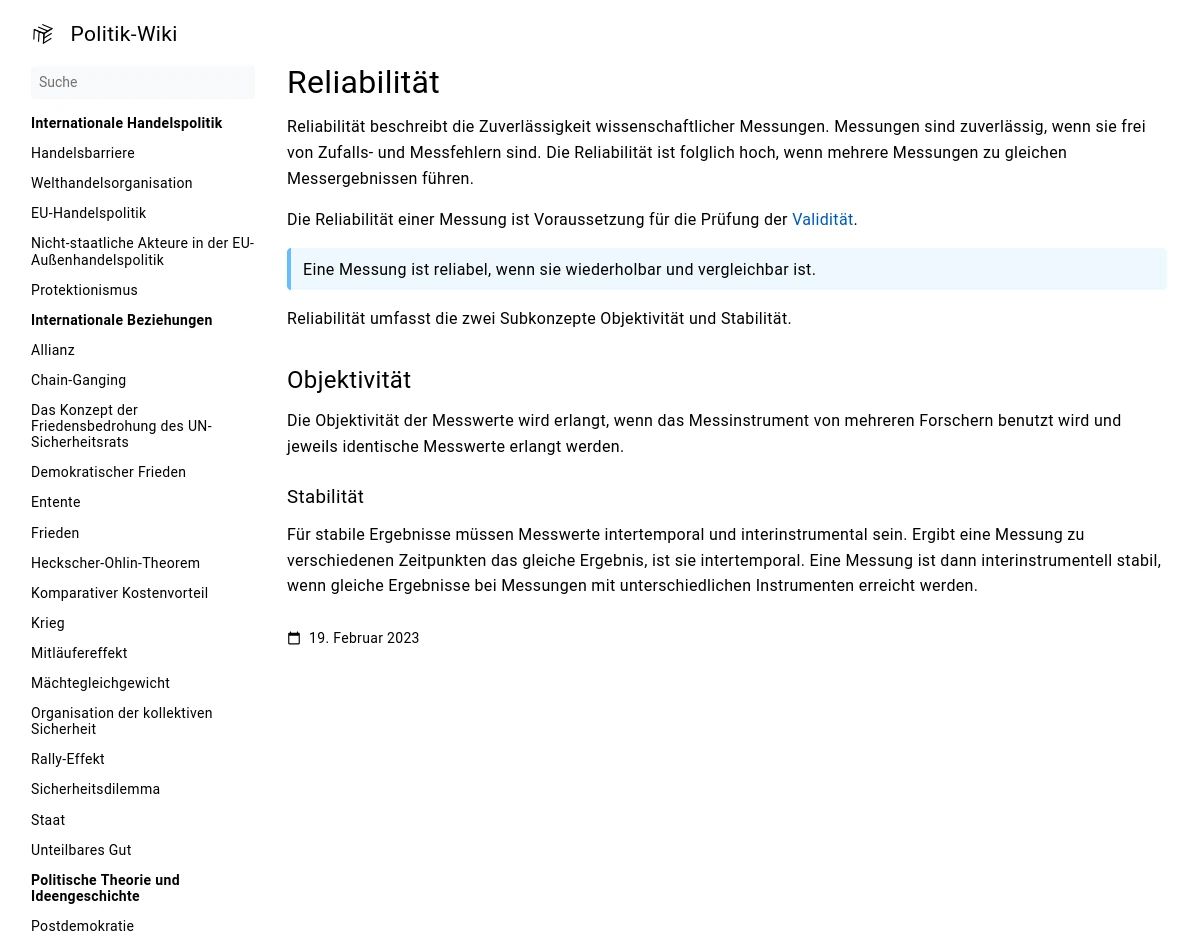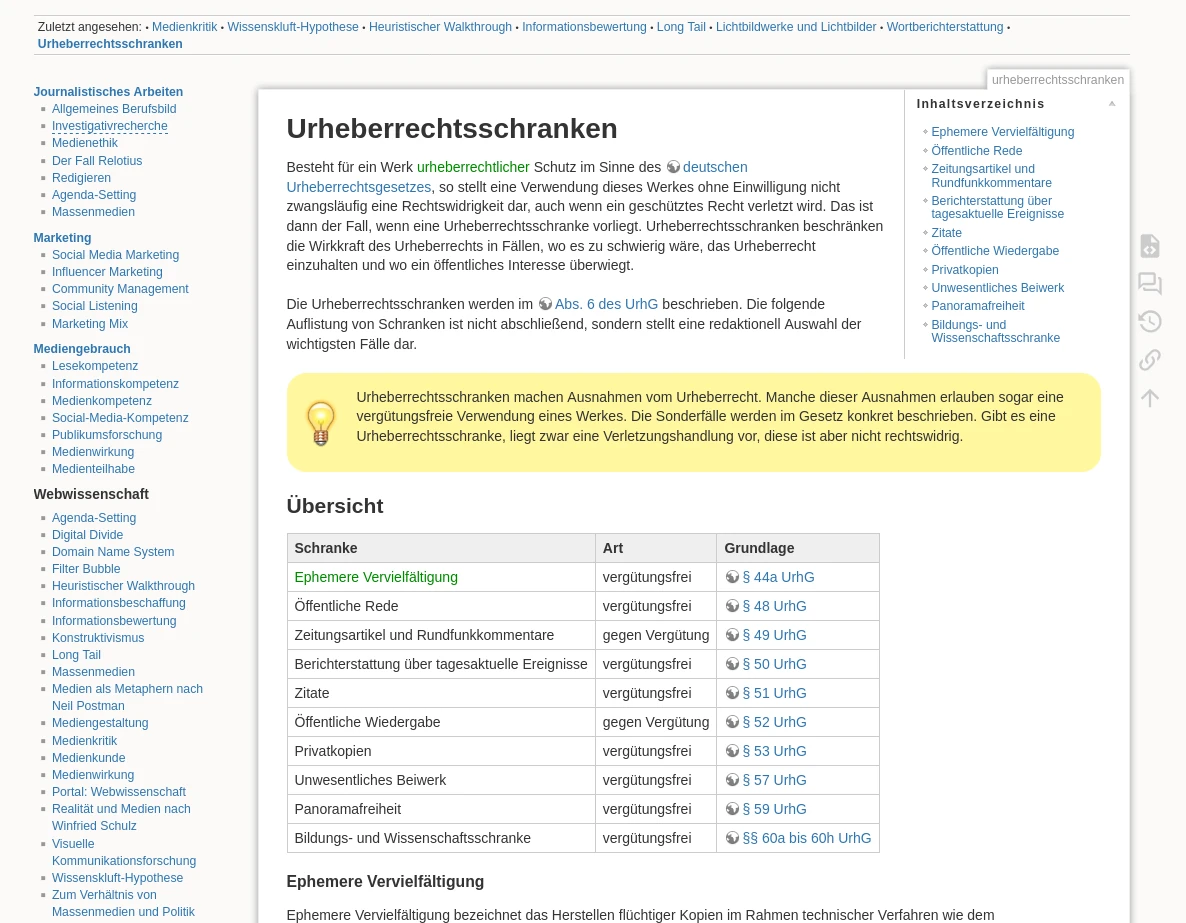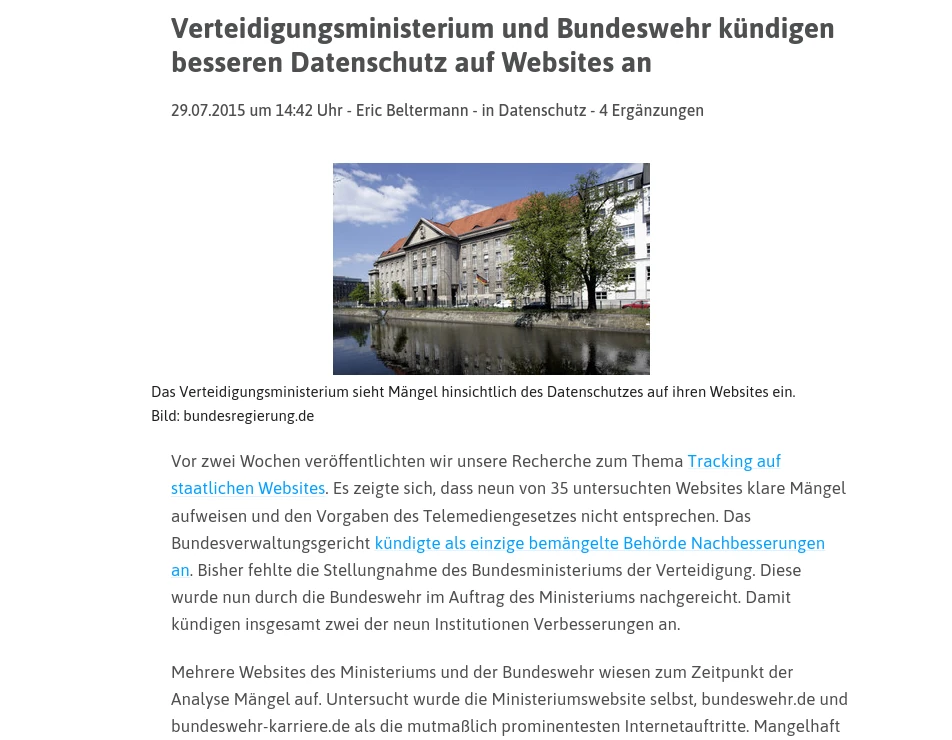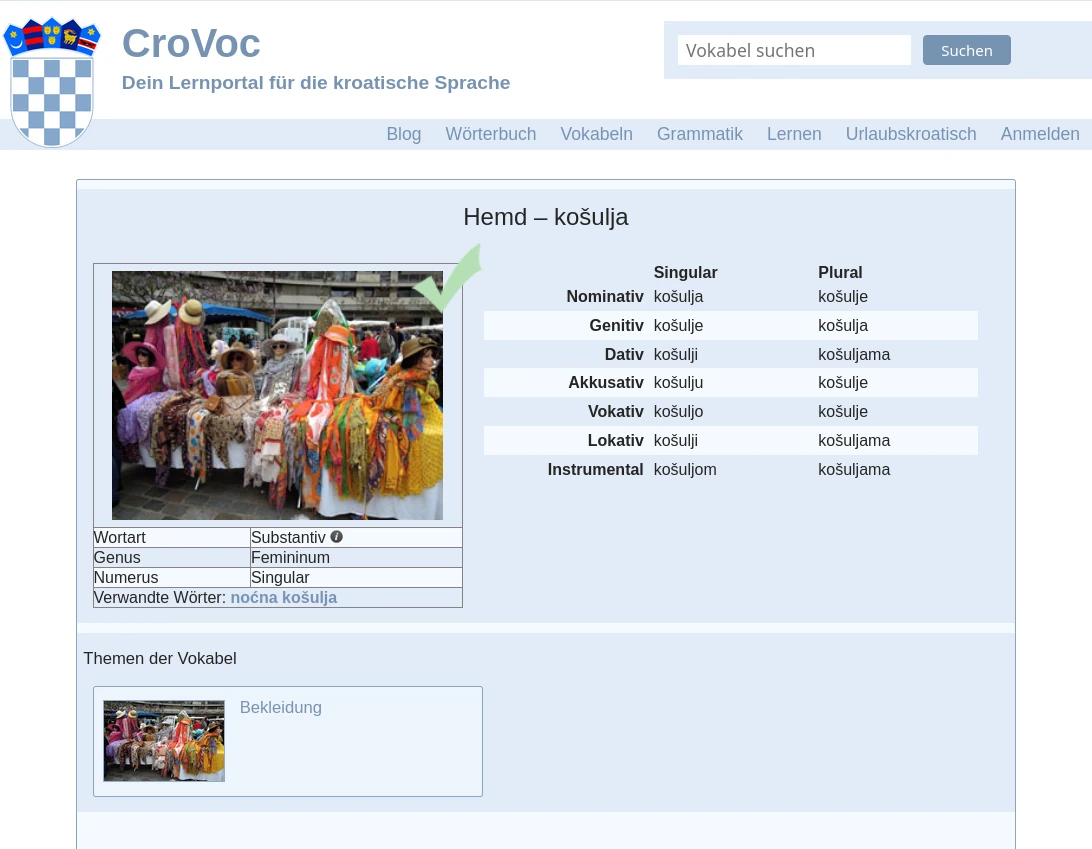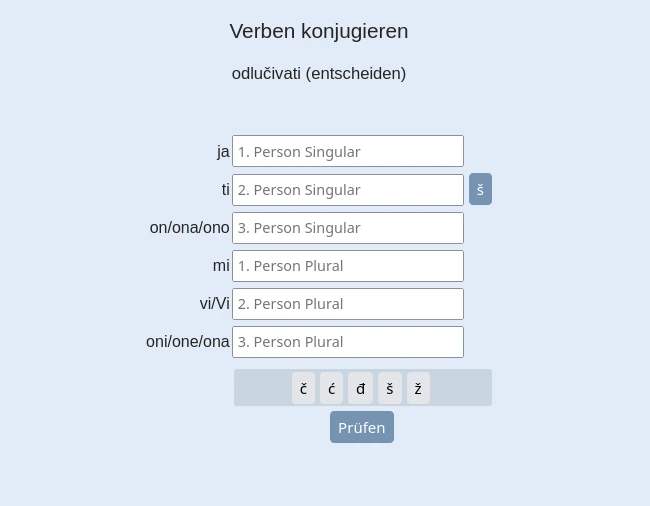Hi, I'm Eric Beltermann, a data scientist and data journalist based in Berlin. I have experiences in coding, political science, media science, as well as data scraping and analysis. Here's what I can do for you:
- Web scraping and custom data collection
- Data analysis and visualization
- Custom solutions for academia and journalism
- Process digitalization
- Interactive storytelling
- Evaluation of political data
- Lecturing on data journalism and coding
Analysis of Interjections in the Berlin State Parliament
For Tagesspiegel, I analyzed the interjections in the protocols of Berlin's Abgeordnetenhaus. The analysis is based on the data of the StateParl dataset.
Data from 2000 to 2025 was used to find patterns in the behavior of members of parliament.
The analysis revealed different patterns of behavior of the parties
In Collaboration with
East versus West, West versus East?: Analysis of sympathies on German Unity Day
An analysis of sympathies between the federal states of Germany describing the state of unity on 35th German Unity Day. A special spanning two articles.
A first article analyzed the differences of east and west germany in terms of unequality and sympathy based on survey data
A second article allows the users to explore the sympathies amongst the states in a more playful way
A second article allows the users to explore the sympathies amongst the states in a more playful way
In Collaboration with
What divides German society during the election campaign?
An analysis of divisions in the election campaign based on data from the SOSEC panel
This analysis is possible due to a cooperation with Forschungszentrum Informatik (FZI) and Karlsruher Institut für Technologie (KIT). It is founded by the Alfred Landecker Foundation.
Different dividing aspects are presented in a scrollytelling. The article is based on a long research within the provided research data
In Collaboration with
How the AfD brought hate to the parliaments
A scrollytelling about xenophobic narratives of the AfD in german state parliaments. The article is based on a large language model analysis to identify xenophobic statements.
This scrollytelling is an analysis of the state parliament speeches of the AfD. It is based on StateParl.
In an introduction, the history of the AfD in german state parliaments is described.
In the main section, different xenophobic ideologies used by the AfD like "Great Replacement" are described.
Finally, the user can do research on their own.
In Collaboration with
StateParl
A Database of Speeches in German Subnational Parliaments
StateParl is a comprehensive database of speeches delivered in German subnational parliaments. This project originated during my Bachelor's thesis in Political Science and has since evolved into a research initiative at the Otto Suhr Institute for Political Science.
To ensure data integrity, a validation process using a clustered randomized selection method for manual verification was employed.
The data is accessible through a frontend, an API, or by downloading the published dataset.
The API can be used to request data automatically, for example for journalistic purposes. I can support you in writing such programs.
In Collaboration with
75 Years of the Basic Law: Is Our Federal System Still Fit for Purpose?
A conference guest management system
In October 2024, the FU Berlin and the Forum of Federations hosted a conference about the future of federalism. I was asked to build a Guest Management System to facilitate the organisation.
For this, I built a frontend with information on the event as well as a form to enable users to request participation. In the backend, the staff was able to manage the incoming requests.
In Collaboration with
European Weapons, American Victims–How German and Austrian manufacturers are profiting from the arms craze in the USA
Interactive Storytelling
In this research, I was part of a team creating multiple articles on European weapons used in American school shootings, based on the research of Tagesspiegel journalists.
The main storytelling is based on a bee swarm visualisation.
In Collaboration with
Russo-Ukrainian War
War Coverage
With the full-scale invasion of Ukraine by Russian troops, we quickly had to react to cover the fast-moving events. I built a map that combines locations of events with news to better inform our audience and make updates easier.
When gas shortages in winter became more likely due to reduced imports, we built an interactive tool to calculate possible scenarios. I was responsible for the calculations.
In Collaboration with
2021 Berlin State Election & Repeat Election 2023
Journalistic election coverage
In 2021, the Berlin State Election took place which I covered as a member of the Tagesspiegel Innovation Lab. It was repeated in 2023, and I focused on calculations like possible coalitions for the upcoming state government.
Additionally, we produced multiple charts and maps visualizing the surveys and results as well as additional information like candidates' CVs.
In Collaboration with
A Female Fight for the Future
Interactive Storytelling
A Female Fight for the Future is an article series about the causes and impacts of climate change in Africa and how young women across the continent are searching for solutions.
At Tagesspiegel Innovation Lab, we produced a series of articles on the topic. Two of these articles are especially noteworthy. One of these is "Oil wells in the national park" which shows the consequences of a pipeline in Uganda.
The other article is titled "Who is Damaging the Climate Most – and Who Suffers the Consequences" which shows the most endangered regions and the biggest polluters on an interactive globe.
In Collaboration with
Building – Buying – Living
Data vizualisation
In 2022, I visualized price changes for renting and buying living spaces for RP Online.
We especially focused on maps and tables to represent the changes.
In Collaboration with
Social Workers in German Subnational Parliaments
Data Analysis of the share of social workers in German state parliaments
For DemSoz, a research project evaluating the potential of social work to represent people in poverty, I analyzed the composition of German subnational parliaments to determine the proportion of social workers and related professions. Additionally, contact information for a subsequent qualitative approach was collected.
In the context of this project, I taught as a lecturer how tools like open letters and petitions can be used to communicate the needs of clients. During this course, students from several years created a blog researching and discussing different aspects of this matter. Additionally, I provided the technical infrastructure for this blog.
In Collaboration with
2021 Saxony-Anhalt State Election
Election Coverage
In June 2021, the state elections in Saxony-Anhalt took place. At Tagesspiegel Innovation Lab, we covered the election with multiple publications, including an article describing the vote flow.
Another article displayed the election results on a map and provided access to both current and previous election results.
In Collaboration with
2021 Baden-Württemberg State Election
Election Coverage
The 2021 Baden-Württemberg state election was covered by me as a member of the Tagesspiegel Innovation Lab. We provided a selection of data visualizations of the results, such as maps.
In Collaboration with
2021 German Federal Election
Election Coverage
As a member of the Tagesspiegel Innovation Lab team, I covered the German federal election in 2021. The main entry point was an election dashboard that summarized important information.
In Collaboration with
2020 Local Elections in North Rhine-Westphalia
For the Kölner Stadt-Anzeiger, I coded a selection of visualisations of the results of the local elections in North Rhine-Westphalia.
These visualisations comprise charts and maps regarding the elections as well as the following run-offs.
To ease use for the colleagues at the news desk, I built a backend with embed codes and an overview of helpful information on the election.
In Collaboration with
COVID-19 Coverage
Data analysis and visualization of COVID-19 statistics
In collaboration with the respective teams, I analyzed the COVID-19 pandemic and communicated the current status as well as predictions. I did this for Tagesspiegel and Berliner Zeitung.
One of the analyses was a comparison of measures against COVID-19 in different European countries.
In Collaboration with
Studi-Wikis
A network of wikis containing helpful explanations and definitions for students
The "Studi-Wikis, "a collection of wikis I created while studying, summarize things I learned during my studies.
At the moment, there are two wikis available: one for political science and one for media science.
Netzpolitik.org–Investigative Journalism on digital rights and digital culture
During my internship at Netzpolitik.org, I covered digital rights topics. I especially focused on user tracking on government websites.
I evaluated the tracking of 35 federal government websites to assess whether they respect the user's digital rights.
CroVoc–Learning community for the Croatian Language
Crovoc is a community for learning the Croatian language. It includes various exercises, a search function with automatic declensions and conjugations, a chat, as well as diverse information such as a page for vacation Croatian.
One of the exercises is a conjugation drill that tests the inflections of verbs. By August 2024, Crovoc had recorded over seven million page views.
Qualifications
Master of Arts Political Science (ongoing)
2023 - present
Otto Suhr Institute of Political Science at Freie Universität Berlin
Bachelor of Arts Political Science
2019 - 2023
Otto Suhr Institute of Political Science at Freie Universität Berlin
Bachelor of Arts Online-Journalism
2016 - 2019
Institute of Information Science at the Cologne University of Applied Sciences
IHK-Certified Foreign Language Correspondent in the Foreign Language English
2015
Chamber of Industry and Commerce, Cologne
State-certified Foreign Language Correspondent
2012 - 2015
Berufskolleg Südstadt, Cologne
Tech Stack
Content Management Systems
Experiences
